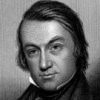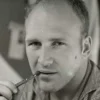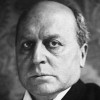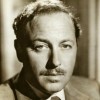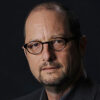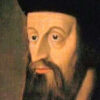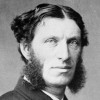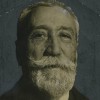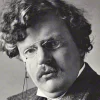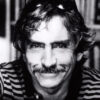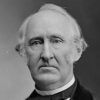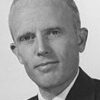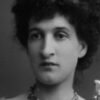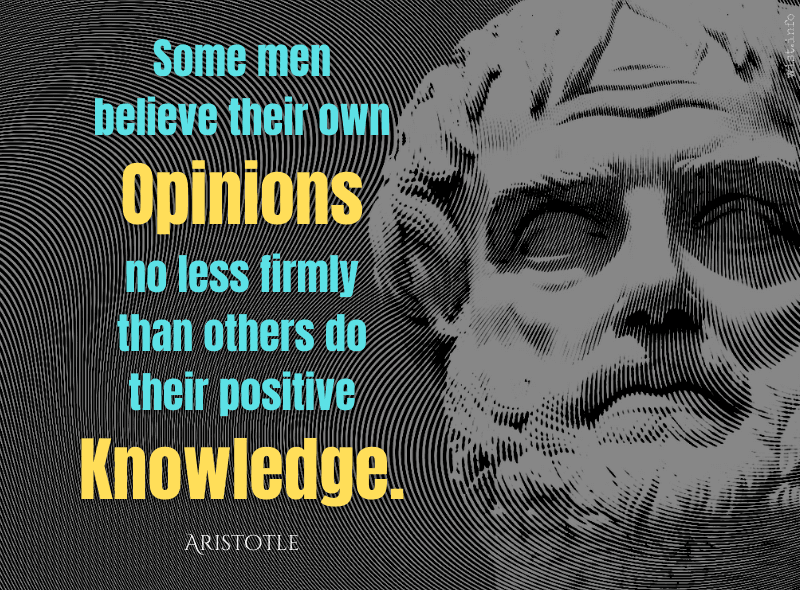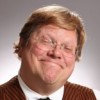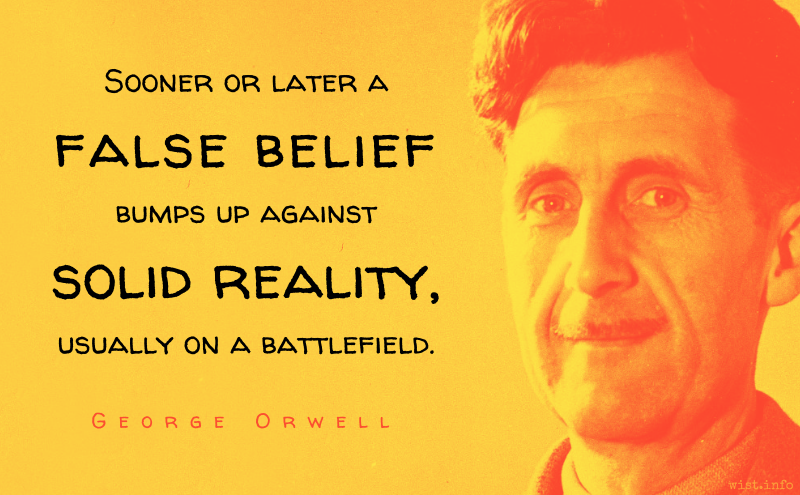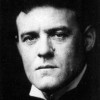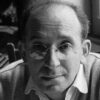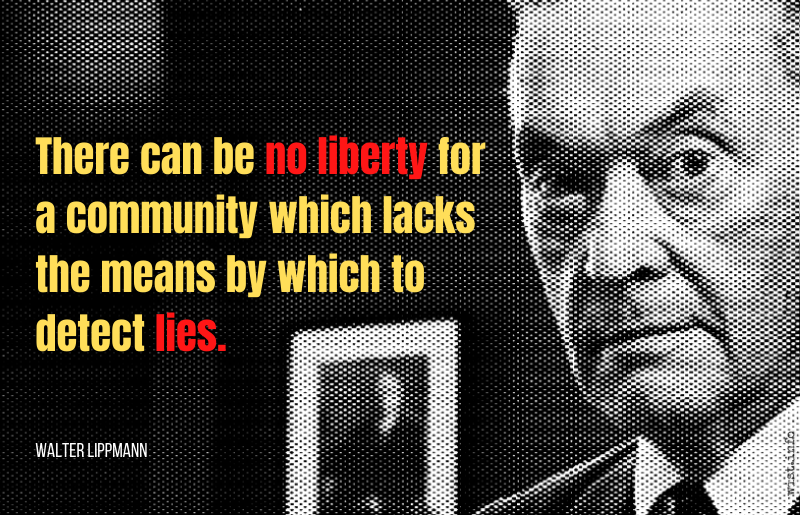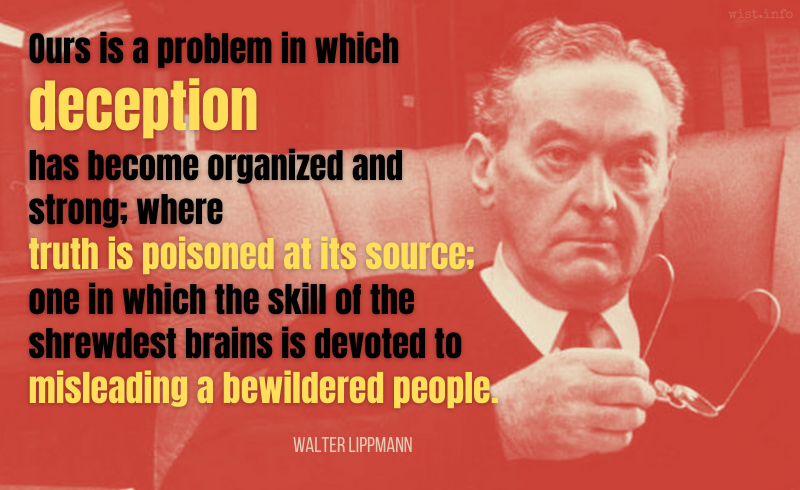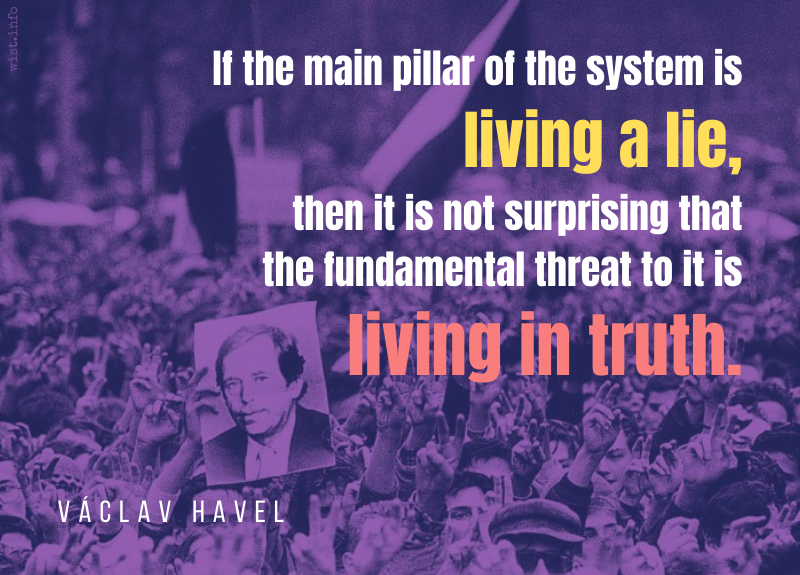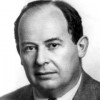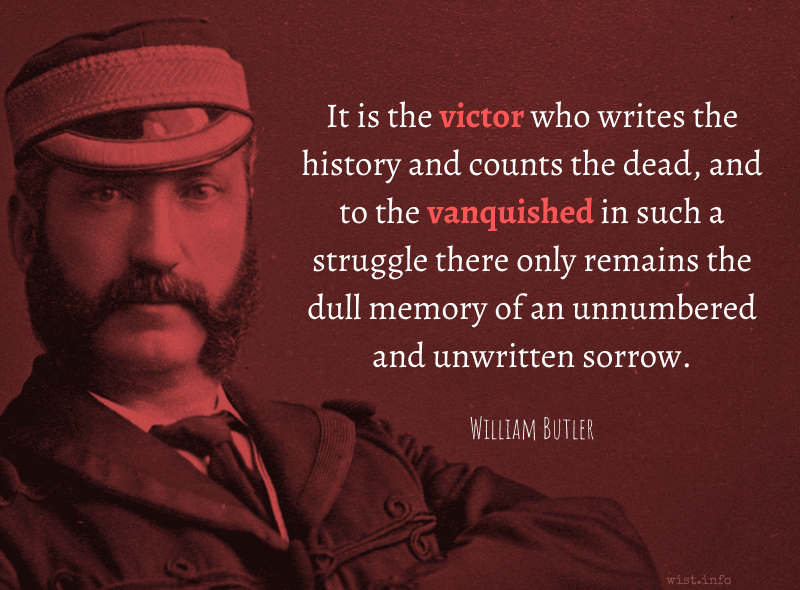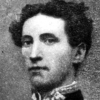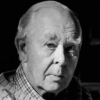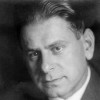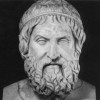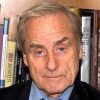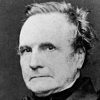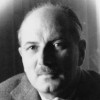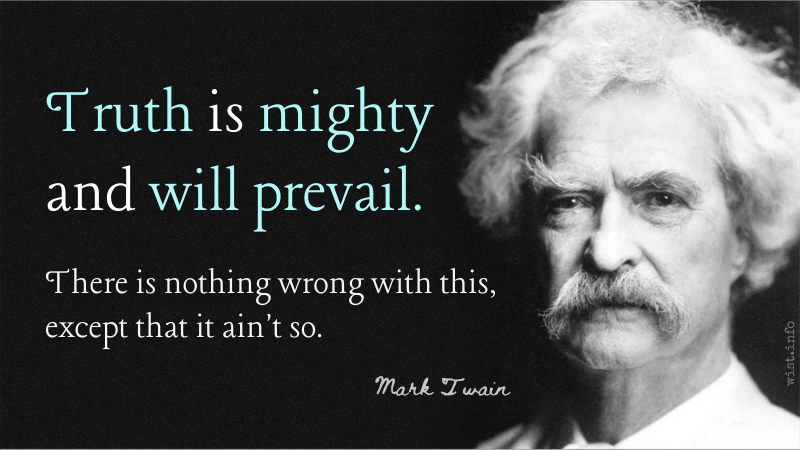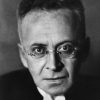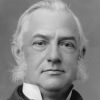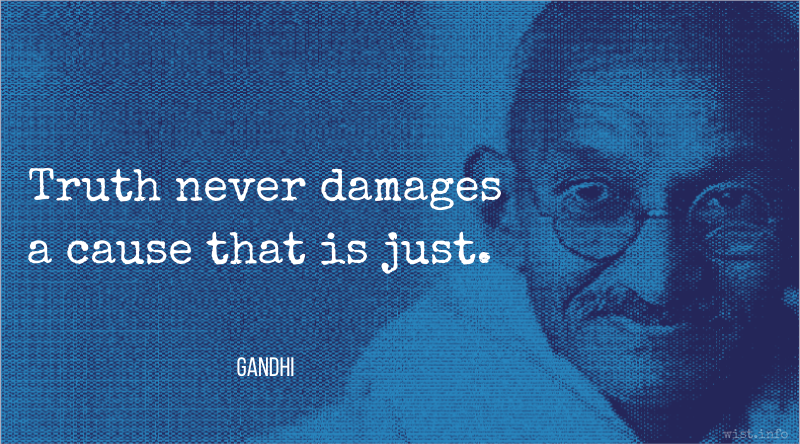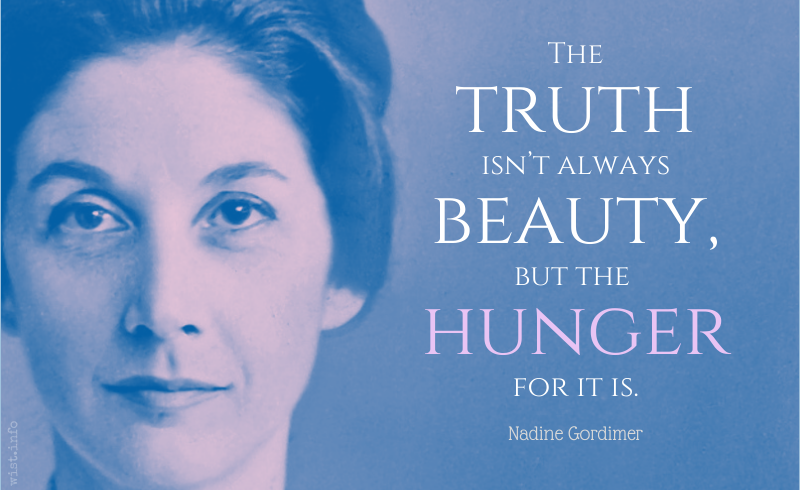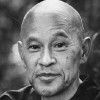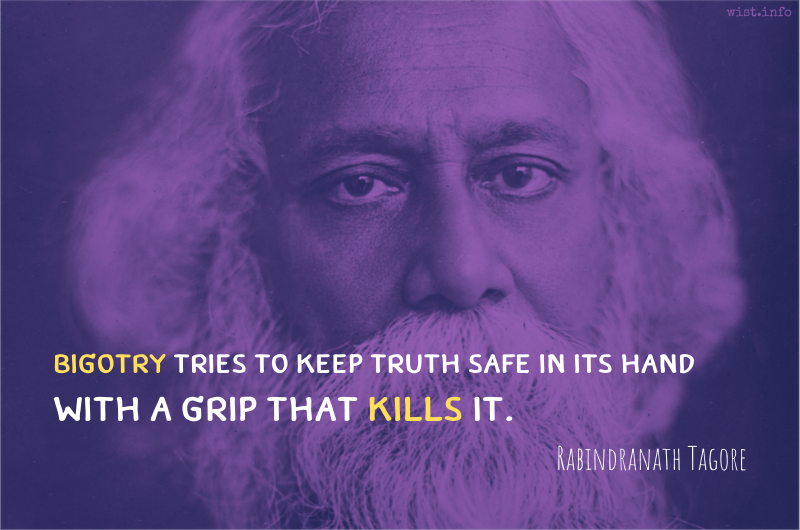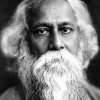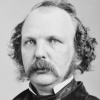CALVIN: This whole Santa Claus thing just doesn’t make sense. Why all the secrecy? Why all the mystery? If the guy exists, why doesn’t he ever show himself and prove it? And if he doesn’t exist, what’s the meaning of all this?
HOBBES: I dunno … isn’t this a religious holiday?
CALVIN: Yeah, but actually, I’ve got the same questions about God.
Quotations about:
truth
Note not all quotations have been tagged, so Search may find additional quotes on this topic.
Nazi theory indeed specifically denies that such a thing as “the truth” exists. There is, for instance, no such thing as “science.” There is only “German science,” “Jewish science” etc. The implied objective of this line of thought is a nightmare world in which the Leader, or some ruling clique, controls not only the future but the past. If the Leader says of such and such an event, “It never happened” — well, it never happened. If he says that two and two are five — well, two and two are five. This prospect frightens me much more than bombs — and after our experiences of the last few years that is not a frivolous statement.
George Orwell (1903-1950) English journalist, essayist, writer [pseud. of Eric Arthur Blair]
Essay (1942-08), “Looking Back on the Spanish War, ch. 4, Such, Such Were the Joys, essay 8 (1953)
(Source)
This is a central theme in his later novel, Nineteen Eighty-Four.
I know it is the fashion to say that most of recorded history is lies anyway. I am willing to believe that history is for the most part inaccurate and biased, but what is peculiar to our own age is the abandonment of the idea that history could be truthfully written.
George Orwell (1903-1950) English journalist, essayist, writer [pseud. of Eric Arthur Blair]
Essay (1942-08), “Looking Back on the Spanish War, ch. 4, Such, Such Were the Joys, essay 8 (1953)
(Source)
Government is competent when all who compose it work as trustees for the whole people. It can make constant progress when it keeps abreast of all the facts. It can obtain justified support and legitimate criticism when the people receive true information of all that government does.
Franklin Delano Roosevelt (1882-1945) American lawyer, politician, statesman, US President (1933-1945)
Speech (1937-01-20), Inaugural Address, Washington, D.C.
(Source)
Cannon-balls may aid the truth,
But thought’s a weapon stronger;
We’ll win our battles by its aid; —
Wait a little longer.Charles Mackay (1814-1889) Scottish poet, journalist, song writer
Poem (1846-01-22), “The Good Time Coming,” st. 1 , London Daily News
(Source)
Originally published under the title "Wait a Little Longer." First collected in Voices from the Crowd and Other Poems (1846).
The odd thing about these television discussions designed to “get all sides of the issue” is that they do not feature a spectrum of people with different views on reality. Rather, they frequently give us a face-off between those who see reality and those who have missed it entirely. In the name of objectivity, we are getting fantasy-land.
Molly Ivins (1944-2007) American writer, political columnist [Mary Tyler Ivins]
Essay (1987-03), “Killing the Messenger,” The Progressive
(Source)
Collected in Molly Ivins Can't Say That, Can She? (1991).
Keep, Galileo, to thy thought,
And nerve thy soul to bear;
They may gloat o’er the senseless words they wring
From the pangs of thy despair:
They may veil their eyes, but they cannot hide
The sun’s meridian glow;
The heel of a priest may tread thee down,
And a tyrant work thee woe;
But never a truth has been destroyed:
They may curse it, and call it crime;
Pervert and betray, or slander and slay
Its teachers for a time.
But the sunshine aye shall light the sky,
As round and round we run;
And the truth shall ever come uppermost,
And justice shall be done.Charles Mackay (1814-1889) Scottish poet, journalist, song writer
Poem (1847), “Eternal Justice,” st. 4
(Source)
Mackay's book Voices from the Mountain was published in 1847. The earliest rendition of the poem I can find in a publication is from The Harbinger, Vol. 5, No. 13 (1847-09-04).
BOLINGBROKE: O, who can hold a fire in his hand
By thinking on the frosty Caucasus?
Or cloy the hungry edge of appetite
By bare imagination of a feast?
Or wallow naked in December snow
By thinking on fantastic summer’s heat?
O no, the apprehension of the good
Gives but the greater feeling to the worse.
Fell sorrow’s tooth doth never rankle more
Than when he bites but lanceth not the sore.William Shakespeare (1564-1616) English dramatist and poet
Richard II, Act 1, sc. 3, l. 301ff (1.3.301-310) (1595)
(Source)
But it’s the truth even if it didn’t happen.
Ken Kesey (1935-2001) American novelist, essayist, countercultural figure
One Flew Over the Cuckoo’s Nest, Part 1 (1962)
(Source)
To lie about a man never hurts him, but to tell the truth about him sumtimes duz.
[To lie about a man never hurts him, but to tell the truth about him sometimes does.]
Josh Billings (1818-1885) American humorist, aphorist [pseud. of Henry Wheeler Shaw]
Josh Billings’ Farmer’s Allminax, 1875-10 (1875 ed.)
(Source)
Strange enough how creatures of the human-kind shut their eyes to plainest facts; and by the mere inertia of Oblivion and Stupidity, live at ease in the midst of Wonders and Terrors. But indeed man is, and was always, a blockhead and dullard; much readier to feel and digest, than to think and consider.
Thomas Carlyle (1795-1881) Scottish essayist and historian
Sartor Resartus, Book 1, ch. 8 (1834)
(Source)
Quoting Herr Teufelsdröckh.
This chapter first appeared in Fraser's Magazine for Town and Country, Vol. 8, No. 48 (1833-12).
Education is the most radical thing in the world.
To teach the alphabet is to inaugurate a revolution.
To build a schoolhouse is to construct a fort.
Every library is an arsenal filled with the weapons and ammunition of Progress, and every fact is a monitor with sides of iron and a turret of steel.
In a word, there is only one thing here worth the minding, and that is, to be true and just, and to show benevolence, even to the untrue and unjust.
[Ἓν ὧδε πολλοῦ ἄξιον, τὸ μετ᾿ ἀληθείας καὶ δικαιοσύνης εὐμενῆ τοῖς ψεύσταις καὶ ἀδίκοις διαβιοῦν.]
Marcus Aurelius (AD 121-180) Roman emperor (161-180), Stoic philosopher
Meditations [To Himself; Τὰ εἰς ἑαυτόν], Book 6, ch. 47 (6.47) (AD 161-180) [tr. Collier/Zimmern (1887)]
(Source)
(Source (Greek)). Alternate translations:One thing there is, and that only, which is worth our while in this world, and ought by us much to be esteemed; and that is, according to truth and righteousness, meekly and lovingly to converse with false, and unrighteous men.
[tr. Casaubon (1634), 6.42]In a word. There's only one thing here worth the minding; And that is, not to imitate the Degeneracy of Mortals: But to be True, Honest, and Good-natur'd, even amongst Knaves, and Sharpers.
[tr. Collier (1701)]The one thing valuable in this life, is, to spend it in a steady course of truth, justice, and humanity, toward even the false and unjust.
[tr. Hutcheson/Moor (1742)]In short, there is nothing here much worth our attention, but to act on all occasions with a regard to truth and justice, and to live peaceably even with those who act with fraud and injustice.
[tr. Graves (1792), 6.41]One thing here is worth a great deal, to pass thy life in truth and justice, with a benevolent disposition even to liars and unjust men.
[tr. Long (1862)]Here one thing is of real worth, to live out life in truth and justice, with charity even to the false and the unjust.
[tr. Rendall (1898)]The one precious thing in life is to spend it in a steady course of truth and justice, with kindliness even for the false and the unjust.
[tr. Hutcheson/Chrystal (1902)]One thing on earth is worth much -- to live out our lives in truth and justice, and in charity with liars and unjust men.
[tr. Haines (Loeb) (1916)]One thing here is of great price, to live out life with truth and righteousness, gracious to liars and to the unrighteous.
[tr. Farquharson (1944)]In this life one thing only is of precious worth: to live out one's days in truthfulness and fair dealing, and in charity even with the false and unjust.
[tr. Staniforth (1964)]In this world there is only one thing of real value, to pass our days in truth and justice, and yet be gracious to those who are false and unjust.
[tr. Hard (1997 ed.)]The only thing that isn’t worthless: to live this life out truthfully and rightly. And be patient with those who don't.
[tr. Hays (2003)]In this world there is only one thing of value, to live out your life in truth and justice, tolerant of those who are neither true nor just.
[tr. Hammond (2006)]In this world there is only one thing of real value, to pass our days in truth and justice, and yet be gracious to those who are false and unjust.
[tr. Hard (2011 ed.)]So there is one thing that is of most value: to live out your life in truth and justice and be kind to those who are false and unjust.
[tr. Gill (2013)]So one thing is worth much: to keep on living with truth and justice and in good will even among liars and unjust men.
[tr. @sentantiq (2019)]
When a fact can be demonstrated, force is unnecessary; when it cannot be demonstrated, an appeal to force is infamous. In the presence of the unknown all have an equal right to think.
Robert Green Ingersoll (1833-1899) American lawyer, freethinker, orator
Lecture (1873-12) “Individuality,” Chicago Free Religious Society
(Source)
Full title "Arraignment of the Church and a Plea for Individuality." Collected in The Gods and Other Lectures (1876).
The world as it stands is no illusion, no phantasm, no evil dream of a night; we wake up to it again for ever and ever; we can neither forget it nor deny it nor dispense with it.
Henry James (1843-1916) American writer
Essay (1874-04), “Iwan Turgéniew,” sec. 3, North American Review, Vol. 98, Art. 4
(Source)
Reviewing Ivan Turgenev's Frühlingsfluthen and Ein König Lear des Dorfes (1873). Collected in French Poets and Novelists, "Ivan Turgénieff," sec. 3 (1878)
We dabble in the Qur’án now and then,
Read, and repent, yet fall from Grace again;
But in the goblet is engraved a text
That greets eternally the eyes of men.قرآن که بهین کلام خوانند اورا
گه گاه نه بر دوام خوانند اورا
در خطِ پیاله آیتی روشن هست
کاندر همه جا مدام خوانند اوراOmar Khayyám (1048-1123) Persian poet, mathematician, philosopher, astronomer [عمر خیام]
Rubáiyát [رباعیات], Bod. # 6 [tr. Talbot (1908)]
(Source)
(Source (Persian)). Alternate translations:The Koran, which men call the Holy Word, is none the less read only from time to time, and not with steadfast study, while on the lip of the cup there runs a luminous verse which we love to read always and ever.
[tr. McCarthy (1879), # 24]Men say the Koran holds all heavenly lore,
But on its pages seldom care to pore;
The lucid lines engraven on the bowl, --
That is the text they dwell on evermore.
[tr. Whinfield (1883), # 7; elsewhere # 10]The Koran's word, oft called "the word sublime,"
Is seldom read, and not in every clime;
But on the goblet's rim there is a verse
Men read in every place and through all time.
[tr. Garner (1898), # 23]The Koran, though The Word Sublime folk style it.
But here and there they read and once-a-while it:
Upon the cup-marge there's a bright verse written,
All-where-and-when folk read, though some revile it.
[tr. Payne (1898), # 20]The Qurán which men call the best word
They read at intervals but not continually
On the lines upon the goblet there is a luminous text
Which they read at all times and in all places.
[tr. Heron-Allen (1897), Calcutta #6]The Qur'an, which men call the Supreme Word,
they read at intervals but not continually,
but on the lines upon the goblet a text is engraved
which they read at all times and in all places.
[tr. Heron-Allen (1898), # 6]Men call the Koran, God's Almighty word,
Yet read it rarely, or forget it quite;
Yet doth a graven verse the cup engird
That all men con, and all their tongues recite.
[tr. Cadell (1899), # 3]Men call the Koran "Fount of Sacred Lore,"
"The Word Supreme," and, hasty, glance it o'er;
But on the goblet's rim a text is writ
That all shall read and ponder evermore.
[tr. Roe (1906), # 47]The Koran though as "Word sublime" read o'er.
Men sometimes on its page, but not long, pore;
There is a bright verse in the cup's lines, for
Within men everywhere read, evermore.
[tr. Thompson (1906), # 6]The Qur'án, which people call the Best Word, they
read it from time to time, not constantly
On the lines of the cup a sacred verse is engraved
which they read everywhere and always.
[tr. Christensen (1927), # 41]The Koran they call the best of texts,
Yet oft-times they do not read it with application.
Around the goblet is engraved a verse
Which everywhere is read incessantly.
[tr. Rosen (1928), # 4]"The scriptures are divine" thus we declare,
We read them seldom, kiss them oft and swear;
But in this cup of life, lo! shines the Word! --
The Truth unchained by bounds of when and where.
[tr. Tirtha (1941), # 9.12]They call the Koran the Ultimate Word,
They read it occasionally but not all the time;
A text stands round the inside of the cup,
This they con at all times and in all places.
[tr. Avery/Heath-Stubbs (1979), # 145]
REALLY, adv. Apparently.
Ambrose Bierce (1842-1914?) American writer and journalist
“Really,” The Devil’s Dictionary (1911)
(Source)
Originally published in the "Cynic's Dictionary" column in the San Francisco Examiner.
Dream on! Though Heaven may woo our open eyes,
Through their closed lids we look on fairer skies;
Truth is for other worlds, and hope for this;
The cheating future lends the present’s bliss;
Life is a running shade, with fettered hands,
That chases phantoms over shifting sands;
Death a still spectre on a marble seat,
With ever clutching palms and shackled feet;
The airy shapes that mock life’s slender chain,
The flying joys he strives to clasp in vain,
Death only grasps; to live is to pursue, —
Dream on! there’s nothing but illusion true!Oliver Wendell Holmes, Sr. (1809-1894) American poet, essayist, scholar
Poem (1861), “The Old Player” (closing lines), Songs in Many Keys (1862)
(Source)
What you were sure of yesterday, you know now to be false, but what you are sure of today is absolutely true.
Mignon McLaughlin (1913-1983) American journalist and author
The Neurotic’s Notebook, ch. 10 (1963)
(Source)
RATIONAL, adj. Devoid of all delusions save those of observation, experience and reflection.
Ambrose Bierce (1842-1914?) American writer and journalist
“Rational,” The Devil’s Dictionary (1911)
(Source)
Originally published in the "Cynic's Dictionary" column in the San Francisco Examiner.
Nature meant there to be illusions for the wise as well as the foolish, so that the wise should not be made too unhappy by their wisdom.
[La Nature a voulu que les illusions fussent pour les sages comme pour les fous, afin que les premiers ne fussent pas trop malheureux par leur propre sagesse.]
Nicolas Chamfort (1741-1794) French writer, epigrammist (b. Nicolas-Sébastien Roch)
Products of Perfected Civilization [Produits de la Civilisation Perfectionée], Part 1 “Maxims and Thoughts [Maximes et Pensées],” ch. 1, ¶ 76 (1795) [tr. Mathers (1926)]
(Source)
(Source (French)). Alternate translations:It is nature’s will that wise men have their illusions as well as fools, to the end that they be not made too unhappy by their own wisdom.
[tr. Hutchinson (1902)]Nature intended illusions for the wise as well as for fools, lest the former should be rendered too miserable by their wisdom.
[tr. Merwin (1969)]Nature wanted wise men to have as many illusions as fools, so that they wouldn't become too unhappy through their wisdom.
[tr. Siniscalchi (1994)]Nature has decreed that wise men and fools both have illusions; this is to prevent the wise man from becoming too unhappy as a result of his wisdom.
[tr. Parmée (2003), ¶62]
The real Bible is not the work of inspired men, nor prophets, nor apostles, nor evangelists, nor of Christs. Every man who finds a fact, adds, as it were, a word to this great book. It is not attested by prophecy, by miracles or signs. It makes no appeal to faith, to ignorance, to credulity or fear. It has no punishment for unbelief, and no reward for hypocrisy. It appeals to man in the name of demonstration. It has nothing to conceal. It has no fear of being read, of being contradicted, of being investigated and understood. It does not pretend to be holy, or sacred; it simply claims to be true. It challenges the scrutiny of all, and implores every reader to verify every line for himself. It is incapable of being blasphemed.
Robert Green Ingersoll (1833-1899) American lawyer, freethinker, orator
Lecture (1874-05-03), “Heretics and Heresies,” Free Religious Society, Kingsbury Hall, Chicago
(Source)
Collected in The Gods and Other Lectures (1876).
I should like to know if, taking this old Declaration of Independence, which declares that all men are equal upon principle, and making exceptions to it, where will it stop? If one man says it does not mean a negro, why not another say it does not mean some other man? If that declaration is not the truth, let us get the Statute book, in which we find it, and tear it out! Who is so bold as to do it? If it is not true let us tear it out!
Abraham Lincoln (1809-1865) American lawyer, politician, US President (1861-65)
Speech (1858-07-10), Chicago, Illinois
(Source)
Categorizing is necessary for humans, but it becomes pathological when the category is seen as definitive, preventing people from considering the fuzziness of boundaries, let alone revising their categories.
Nassim Nicholas Taleb (b. 1960) Lebanese-American essayist, statistician, risk analyst, aphorist
The Black Swan, Part 1, ch. 1 “The Apprenticeship of an Empirical Skeptic” (2007)
(Source)
Historians relate, not so much what is done, as what they would have believed.
Benjamin Franklin (1706-1790) American statesman, scientist, philosopher, aphorist
Poor Richard (1739 ed.)
(Source)
It is not the desire for true riches that depraves man, but the desire for those that are false. A people never became corrupted for having grain, fruits, a pure air, better waters, more perfect arts, but for having gold, jewelry, subjects, power, a false renown, and an unjust superiority.
[Ce n’est pas le désir des vrais biens qui déprave l’homme, mais le désir de ceux qui sont faux. Jamais un peuple ne s’est corrompu, pour avoir du blé, des fruits, un air pur, des eaux meilleures, des arts plus parfaits, des femmes plus belles; mais pour avoir de l’or, des pierreries, des sujets, de la puissance, un faux renom et une injuste supériorité.]
Joseph Joubert (1754-1824) French moralist, philosopher, essayist, poet
Pensées [Thoughts], ch. 16 “Des Mœurs publiques et privées; du Caractère des Nations [On Morality and the Character of Nations],” ¶ 39 (1850 ed.) [tr. Calvert (1866), ch. 12]
(Source)
(Source (French)). This "thought" is not included in other translations I could find.
The weakness of a soul is proportionate to the number of truths that must be kept from it.
Eric Hoffer (1902-1983) American writer, philosopher, longshoreman
Passionate State of Mind, Aphorism 61 (1955)
(Source)
We need not power or splendor;
Wide hall or lordly dome;
The good, the true, the tender, —
These form the wealth of home.Sarah J. Hale (1788-1879) American writer, activist, magazine editor
“Home” (1830)
The provenance of this poem is unclear. It is often assigned to her Poems for Our Children (1830) (the original location of her "Mary Had a Little Lamb"), but does not appear there. That work is subtitled "Part First," but there is no indication that a second part was ever published.
And yet what harm can there be
in presenting the truth with a laugh, as teachers sometimes give
their children biscuits to coax them into learning their ABC?[Quamquam ridentem dicere verum
quid vetat? ut pueris olim dant crustula blandi
doctores, elementa velint ut discere prima.]Horace (65–8 BC) Roman poet, satirist, soldier, politician [Quintus Horatius Flaccus]
Satires [Saturae, Sermones], Book 1, # 1, “Qui fit, Mæcenas,” l. 24ff (1.1.24-26) (35 BC) [tr. Rudd (2005 ed.)]
(Source)
(Source (Latin)). Alternate translations:Toyes may kepe and staye
Sumtimes the reeder very well, as those that teache in schooles,
With buttred bread, or featusse knacks will lewre the little fooles,
To learne a pace theyr A. B. C.
[tr. Drant (1567)]Though to blurt out a truth has never been
(In way of merriment) esteem'd a sin.
The flattering Master thus his Boys presents
With Cakes, to make them learn their Rudiments.
[tr. A. B.; ed. Brome (1666)]And mirth commends, and makes our Precepts take,
Thus Teachers bribe their Boys with Figs and Cake
To mind their books.
[tr. Creech (1684)]Yet may not truth in laughing guise be drest?
As masters fondly sooth their boys to read
With cakes and sweetmeats.
[tr. Francis (1747)]Albeit why may not truth in smiles be drest,
As gentle teachers lure the child to come
And learn his horn-book, with a sugar plum?
[tr. Howes (1845)]Though what hinders one being merry, while telling the truth? as good-natured teachers at first give cakes to their boys, that they may be willing to learn their first rudiments.
[tr. Smart/Buckley (1853)]Although what does prevent one telling truth in playful mood, as often tutors give their pupils cakes caressingly, to make them care to learn their ABC?
[tr. Millington (1870)]Though, for me,
Why truth may not be gay, I cannot see:
Just as, we know, judicious teachers coax
With sugar-plum or cake their little folks
To learn their alphabet.
[tr. Conington (1874)]What is to prevent one from telling truth as he laughs, even as teachers sometimes give cookies to children to coax them into learning their A B C?
[tr. Fairclough (Loeb) (1926)]And yet -- there’s no law against telling the truth with a smile.
Smart teachers, for instance, give crunchy sweets to children
To make them learn their letters.
[tr. Palmer Bovie (1959)]But tell me what law is violated if someone laughs
while speaking truth? You know how teachers sometimes give
their pupils little cakes, to help them learn their ABC’s.
[tr. Fuchs (1977)]Though why can’t one tell the truth
With a smile? Teachers coax children to love
Learning by giving them cookies.
[tr. Raffel (1983)]Although what's there to forbid one who is laughing,
from telling the truth? As loving teachers sometimes
hand out sweets to their pupils
so that they'll want to learn their ABC's.
[tr. Alexander (1999)]Though what bars us
from telling truths with a laugh, the way teachers
sow cookies and reap memorized alphabets?
[tr. Matthews (2002)]Though what stops one telling the truth
While smiling, as teachers often give children biscuits
To try and tempt them to learn their alphabet?
[tr. Kline (2015)]
There can be no friendship without truth, but there can be a deal of truth without one grain of friendship.
Minna Antrim (1861-1950) American epigrammatist, writer
Naked Truth and Veiled Allusions (1902)
(Source)
In its natural state, the child tells the literal truth because it is too naive to think of anything else. Blurting out the complete truth is considered adorable in the young, right smack up to the moment that the child says, “Mommy, is this the fat lady you can’t stand?” At this point, the parent rightly senses the need to explain kindness.
Judith Martin (b. 1938) American author, journalist, etiquette expert [a.k.a. Miss Manners]
Miss Manners’ Guide to Rearing Perfect Children, ch. 8 “Extra Credit,” “Ethics” (1984)
(Source)
I believe that the truth about any subject only comes when all sides of the story are put together, and all their different meanings make one new one.
Alice Walker (b. 1944) American writer, activist
“Beyond the Peacock: The Reconstruction of Flannery O’Connor,” In Search of Our Mothers’ Gardens (1983)
(Source)
If one’s thoughts were written on one’s face, many would need masks.
Minna Antrim (1861-1950) American epigrammatist, writer
Naked Truth and Veiled Allusions (1902)
(Source)
Truth ensures trust, but not victory, or even happiness.
Penelope Fitzgerald (1916-2000) Novelist, poet, essayist, biographer
Human Voices, ch. 1 (1980)
(Source)
Writing of BBC News during World War 2.
Trouble with a lot of these biographers is, they go and lower the moral of character with a lot of facts. Nothing will spoil a big man’s life like too much truth.
Will Rogers (1879-1935) American humorist
Column (1933-10-29), “Weekly Articles: How Writers Write” [No. 566]
(Source)
For me, reason is the natural organ of truth; but imagination is the organ of meaning. Imagination, producing new metaphors or revivifying old, is not the cause of truth, but its condition.
C. S. Lewis (1898-1963) English writer, literary scholar, lay theologian [Clive Staples Lewis]
“Bluspels and Flalansferes: A Semantic Nightmare” (1936), Rehabilitations and Other Essays (1939)
(Source)
First given as a lecture at Manchester University.
Having been brought up with a definition of faith as “adherence to a set of beliefs,” I have more and more begun to turn instead toward a definition of faith as “openness to truth, whatever truth may turn out to be.”
Barbara Brown Taylor (b. 1951) American minister, academic, author
Interview (2000-05-12), “Barbara Brown Taylor Profile,” with Bob Abernethy, Religion & Ethics NewsWeekly (PBS)
(Source)
(Source (Video), 2:32)
Collected in Bob Abernethy and William Bole, The Life of Meaning, ch. 4, sec. 29 "Blessing the Doubters" (2007).
The plaque at the front of the courtroom, high on the wall, was permanent and yet its words were new each time Jack read them, read them half against his will, his eyes moving restlessly forward and up to them while testimony droned on: Conscience Speaks the Truth.
Obviously the facts are never just coming at you but are incorporated by an imagination that is formed by your previous experience. Memories of the past are not memories of facts but memories of your imaginings of the facts.
Philip Roth (1933-2008) American novelist and short-story writer
The Facts: A Novelist’s Autobiography, Introductory Letter to Nathan Zuckerman (1988)
(Source)
Zuckerman was Roth's literary alter ego, and narrator of several of Roth's books.
ESMERALDA: Everyone says he’s sincere, but everyone isn’t sincere. If everyone was sincere who says he’s sincere there wouldn’t be half so many insincere ones in the world and there would be lots, lots, lots more really sincere ones!
In England such concepts as justice, liberty and objective truth are still believed in. They may be illusions, but they are very powerful illusions.
George Orwell (1903-1950) English journalist, essayist, writer [pseud. of Eric Arthur Blair]
The Lion and the Unicorn: Socialism and the English Genius, Part 1 “England Your England,” sec. 2 (1941)
(Source)
There are very few human beings who receive the truth, complete and staggering, by instant illumination. Most of them acquire it fragment by fragment, on a small scale, by successive developments, cellularly, like a laborious mosaic.
After awhile, when accusations are continually and sweepingly made against all men, good and bad, the public as a whole grow to believe that there is a little something bad about the decent man and that there is not much bad about the crook. No greater harm can be done to the body politic than by those men who, through reckless and indiscriminate accusation of good men and bad men, honest men and dishonest men alike, finally so hopelessly puzzle the public that they do not believe that any man in public life is entirely straight; while, on the other hand, they lose all indignation against the man who really is crooked.
Theodore Roosevelt (1858-1919) American politician, statesman, conservationist, writer, US President (1901-1909)
Speech (1910-08-29) “The Nation and the States,” Colorado State Legislature, Denver
(Source)
Collected in Roosevelt, The New Nationalism, Part 1 (1910).
Then let no woman hence in man believe,
Or think a lover speaks but to deceive.
He, while ungratified desire is high,
Shrinks from no oath, no promise will deny;
Soon as his lust is satiate with its prize,
He spurns his vows and perjury’s curse defies.
[Nunc iam nulla viro iuranti femina credat,
nulla viri speret sermones esse fideles;
quis dum aliquid cupiens animus praegestit apisci,
nil metuunt iurare, nihil promittere parcunt:
sed simul ac cupidae mentis satiata libido est,
dicta nihil metuere, nihil periuria curant.]Catullus (c. 84 BC – c. 54 BC) Latin poet [Gaius Valerius Catullus]
Carmina # 64 “The Nuptuals of Peleus and Thetis,” ll. 144-149 [tr. Lamb (1821)]
(Source)
Ariadne lamenting Theseus' faithlessness.
(Source (Latin)). Alternate translations:Hear this, and wisdom learn, ye witless fair!
Ne'er let false man with empty oaths deceive,
No protestations of the sex believe!
Is there a wish their ardent souls would gain;
they swear, they promise, and at length obtain;
The wish obtain'd, they fearless break their word,
Nor plighted faith, nor solemn vows regard.
[tr. Nott (1795), # 61; ll. 173ff.]Henceforth let woman; never trust the oaths that man shall make,
Nor ever more his honeyed speech within her bosom take!
While yet the fire of his desire is hot within his breast,
What will he not to woman swear, to heav'n what not protest?
But let her in an evil hour resign her maiden trust,
And yield the blossom of her youth to sate his selfish lust,
Then what recks he of lavish oath, or vow, or whisper'd pray'r?
He triumphs in his perjuries, and spurns at her despair.
[tr. T. Martin (1861)]Henceforth let never woman trust an oath than man shall swear,
Nor count the tender speeches true his lying lips declare:
For when with lusting soul he yearns some object to enjoy,
No oath, no promise then he deems too sacred to employ;
But when his soul is sated, and his burning passion dies,
He fears to break no plighted vows, cares nought for perjuries.
[tr. Cranstoun (1867)]Let not a woman trust, since that first treason, a lover's
Desperate oath, none hope true lover's promise is earnest.
They, while fondly to win their amorous humour essayeth,
Fear no covetous oath, all false free promises heed not;
They if once lewd pleasure attain unruly possession,
Lo they fear not promise, of oath or perjury reck not.
[tr. Ellis (1871)]Now, let woman no more trust her to man when he sweareth,
Ne'er let her hope to find or truth or faith in his pleadings,
Who when lustful thought forelooks to somewhat attaining,
Never an oath they fear, shall spare no promise to promise.
Yet no sooner they sate all lewdness and lecherous fancy,
Nothing remember of words and reck they naught of fore-swearing.
[tr. Burton (1893)]Now, now, let no woman give credence to man's oath, let none hope for faithful vows from mankind; for while their eager desire strives for its end, nothing fear they to swear, nothing of promises forbear they: but instantly their lusting thoughts are satiate with lewdness, nothing of speech they remember, nothing of perjuries care.
[tr. Smithers (1894)]Henceforth let no woman believe a man's oath, let none believe that a man's speeches can be trustworthy. They, while their mind desires something and longs eagerly to gain it, nothing fear to swear, nothing spare to promise; but as soon as the lust of their greedy mind is satisfied, they fear not then their words, they heed not their perjuries.
[tr. Warre Cornish (1904)]Hereafter let; no woman trust man's promises, or hope for faithful words; for when they wish to attain their desires, there is nothing they will not swear, no promise do they scruple to make: but once their desires have been satisfied, they fear no broken words and care nothing for their perjuries.
[tr. Stuttaford (1912)]Never let maid believe a lover's oath;
Nor hope a man be faithful to his troth;
Long as men's hearts are spurred by keen desire,
No oath they shrink from and no promise spare;
Soon as their sated lust begins to tire
No oath they heed and nought for falsehood care.
[tr. Symons-Jeune (1923)]Henceforth, no woman trust the oath of man,
No woman dream the word of man is true:
They, whensoe'er they lust for anything,
Swear every oath and every promise make,
But, when their eager lust is satisfied,
Nor reck of oaths nor promises regard.
[tr. MacNaghten (1925)]Henceforth let never listening maid believe
Protesting man! When their false hearts conceive
The selfish wish, to all but pleasure blind,
No words they spare, no oaths unuttered leave.
But when possession cloys their pampered mind,
No care have they for oaths, no words their honour bind.
[tr. Wright (1926)]From this hour
may no woman believe what men say, for men (minds set upon a single end) will promise everything,
but once the shrewd mind satisfies its passion, it plunges forward (the broken promise merely words that trail behind tall bravery).
[tr. Gregory (1931)]Let no woman ever believe any oath that a man swears,
or ever expect him to keep faith with his fine speeches!
When they want something, when they are anxious to get it,
they take oaths without fear, and pour out promises freely;
but just as soon as their hot desire is sated,
none of their lies & deceptions ever disturb them.
[tr. C. Martin (1979)]From now on let no woman believe a man's sworn promises.
From now on let no woman hope a man's talk is true.
So long as their desiring minds are eager to get something,
they swear to anything. No promise do they spare.
But as soon as the lust in their desirous intent is gratified,
they remember nothing they said, they care nothing for their lies.
[tr. Banks (1997)]Now, no woman should believe a man’s pledges,
or believe there’s any truth in a man’s words:
when their minds are intent on their desire,
they have no fear of oaths, don’t spare their promises:
but as soon as the lust of their eager mind is slaked
they fear no words, they care nothing for perjury.
[tr. Kline (2001)]Henceforth let no woman trust a man's sworn promise,
or hope that he'll ever be true to his given word,
for as long as his lustful heart is bent on possession
he'll shrink from no oath, stop short at no promises,
but the moment hte urge of his ardent mind is sated
he forgets all he's said, breaks oaths without a tremor.
[tr. Green (2005)]Now already let no woman trust a man swearing,
let none hope that the speeches of man are faithful,
for whom while the desiring mind is eager to grasp something,
They fear to swear nothing, they spare to promise nothing.
But as soon as the lust of the desiring mind has been satisfied,
They feared the words as nothing, they care for the false oaths not at all.
[tr. Wikisource (2018)]
PLATITUDE. An idea (a) that is admitted to be true by everyone, and (b) that is not true.
H. L. Mencken (1880-1956) American writer and journalist [Henry Lewis Mencken]
A Book of Burlesques, “The Jazz Webster” (1924)
(Source)
See his definition of "epigram."
Variant:Platitude — An idea (a) that is admitted to be true by everyone, and (b) that is not true.
[Chrestomathy, ch. 30 "Sententiae" (1949)]
‘T is strange — but true; for truth is always strange;
Stranger than fiction; if it could be told,
How much would novels gain by the exchange!
How differently the world would men behold!George Gordon, Lord Byron (1788-1824) English poet
Don Juan, Canto 14, st. 101 (1823)
(Source)
Apparent origin of the phrase "Truth is stranger than fiction."
And, after all, what is a lie? ‘T is but
The truth in masquerade; and I defy
Historians, heroes, lawyers. priests, to put
A fact without some leaven of a lie.
BANQUO: And oftentimes, to win us to our harm,
The instruments of darkness tell us truths,
Win us with honest trifles, to betray ’s
In deepest consequence.William Shakespeare (1564-1616) English dramatist and poet
Macbeth, Act 1, sc. 3, l. 135ff (1.3.135-138) (1606)
(Source)
Speaking to Macbeth of the Weïrd Sisters (witches).
The Ten Commandments that, as a teacher, I should wish to promulgate, might be set forth as follows:
- Do not feel absolutely certain of anything.
- Do not think it worth while to proceed by concealing evidence, for the evidence is sure to come to light.
- Never try to discourage thinking for you are sure to succeed.
- When you meet with opposition, even if it should be from your husband or your children, endeavour to overcome it by argument and not by authority, for a victory dependent upon authority is unreal and illusory.
- Have no respect for the authority of others, for there are always contrary authorities to be found.
- Do not use power to suppress opinions you think pernicious, for if you do the opinions will suppress you.
- Do not fear to be eccentric in opinion, for every opinion now accepted was once eccentric.
- Find more pleasure in intelligent dissent that in passive agreement, for, if you value intelligence as you should, the former implies a deeper agreement than the latter.
- Be scrupulously truthful, even if the truth is inconvenient, for it is more inconvenient when you try to conceal it.
- Do not feel envious of the happiness of those who live in a fool’s paradise, for only a fool will think that it is happiness.
Bertrand Russell (1872-1970) English mathematician and philosopher
“The Best Answer to Fanaticism: Liberalism,” New York Times Magazine (1951-12-16)
(Source)
Sometimes referred to as "The Liberal Decalogue." Later printed in The Autobiography of Bertrand Russell, Vol. 3 (1969).
If we turn away from knowledge and truth, we will not succeed. If we believe the worst and suspect the best, we alone will suffer. If we deny our progress, if we are against all of it, if we tear down our accomplishments, we will fill the world with sorrow, and we will blemish our own name with shame.
But if we are courageous and farsighted and farseeing, if we have no fear of the truth, if we seek only after light, then we and our children and our children’s children shall know the greatness of this wonderful, beautiful land we call America.Lyndon B. Johnson (1908-1973) American politician, educator, US President (1963-69)
Speech (1964-09-28), Convocation, Brown University
(Source)
On government support of higher education, research, and scholarship.
Perhaps the greatest rudenesses of our time come not from the callousness of strangers, but from the solicitousness of intimates who believe that their frank criticisms are always welcome, and who feel free to “be themselves” with those they love, which turns out to mean being their worst selves, while saving their best behavior for strangers.
Judith Martin (b. 1938) American author, journalist, etiquette expert [a.k.a. Miss Manners]
Common Courtesy, “Those Who Would Change the Country’s Manners Encounter Citizen Resistance” (1985)
(Source)
You dull your own perceptions
with false imaginings and do not grasp
what would be clear but for your preconceptions.
[Tu stesso ti fai grosso
col falso imaginar, sì che non vedi
ciò che vedresti se l’avessi scosso.]Dante Alighieri (1265-1321) Italian poet
The Divine Comedy [Divina Commedia], Book 3 “Paradiso,” Canto 1, l. 88ff (1.88-90) [Beatrice] (1320) [tr. Ciardi (1970)]
(Source)
Dante's beloved Beatrice greets him for the first time since his arrival in Paradise, chiding him for his terrestrial assumptions of what he's seeing.(Source (Italian)). Alternate translations:False Forms deceive thy optics. Son of Man!
With shadowy objects which eclipse the true.
[tr. Boyd (1802), st. 20]With false imagination thou thyself
Mak’st dull, so that thou seest not the thing,
Which thou hadst seen, had that been shaken off.
[tr. Cary (1814)]Imagination false
Hath made thee dull, so that thou canst not see
That thou might'st, hadst thou looked diligently.
[tr. Bannerman (1850)]Thou makest thyself so dull
With false imagining, that thou seest not
What thou wouldst see if thou hadst shaken it off.
[tr. Longfellow (1867)]Thou thyself makest thyself gross with false imagining, so that thou seest not that which thou wouldest have seen, if thou hadst shaken it off.
[tr. Butler (1885)]Thyself thou makest blind
With thy false fancy, that thou canst not see
What thou wouldst see, if this were thrown behind.
[tr. Minchin (1885)]Thou thyself makest thyself dull with false imagining, so that thou seest not what thou wouldst see, if thou hadst shaken it off.
[tr. Norton (1892)]Thou thyself makest thyself dense Earthly with false imagining, and so thou seest not what heavenly thou wouldst see, if thou hadst cast it off.
[tr. Wicksteed (1899)]Thou dullest thine own wit
With false imagination, nor preceivest
That which thou wouldst perceive, being rid of it.
[tr. Sayers/Reynolds (1962)]Thou makest thyself dull with false fancies so that thou canst not see as thou wouldst if thou hadst cast them off.
[tr. Sinclair (1939)]Thou makest thyself dense of wit
With false fancy, so that thou dost not see
What thou would’st see, wert thou but rid of it.
[tr. Binyon (1943)]You make yourself dull with false imagining, so that you do not see what you would see had you cast it off.
[tr. Singleton (1975)]You are making yourself stupid
By imagining what isn’t, so that you do not
See what you would if you could shake that off.
[tr. Sisson (1981)]You make yourself
obtuse with false imagining; you can
not see what you would see if you dispelled it.
[tr. Mandelbaum (1984)]You have yourself to blame for burdening
your mind with misconceptions that prevent
from seeing clearly what you might have seen.
[tr. Musa (1984)]You are making yourself swell
with false imagining, so that you do not see
what shaking it off would show.
[tr. Durling (2011)]You make yourself stupid with false imaginings, and so you do not see, what you would see, if you discarded them.
[tr. Kline (2002)]With false imaginings
you make yourself so dull you fail to see
what, shaking off this cloud, you’d see quite well.
[tr. Kirkpatrick (2007)]You make yourself dull-witted
with false notions, so that you cannot see
what you would understand, had you but cast them off.
[tr. Hollander/Hollander (2007)]You're overwhelming yourself with false
And foolish conjuring, preventing what your eyes
Would see if you did not struggle so hard for triumph.
[tr. Raffel (2010)]You get all mixed up
By sticking with a figment of your imagination, so
You don’t see what you would see if you shook it off.
[tr. Bang (2021)]
Time will explain it all. He is a talker, and needs no questioning before he speaks.
[τὰ πόλλ’ ἀνάγκη διαφέρει τολμήματα]
One of the most amazing and perplexing features of mainstream Christianity is that seminarians who learn the historical-critical method in their Bible classes appear to forget all about it when it comes time for them to be pastors. They are taught critical approaches to Scripture, they learn about the discrepancies and contradictions, they discover all sorts of historical errors and mistakes, they come to realize that it is difficult to know whether Moses existed or what Jesus actually said and did, they find that there are other books that were at one time considered canonical but that ultimately did not become part of Scripture (for example, other Gospels and Apocalypses), they come to recognize that a good number of the books of the Bible are pseudonymous (for example, written in the name of an apostle by someone else), that in fact we don’t have the original copies of any of the biblical books but only copies made centuries later, all of which have been altered. They learn all this, and yet when they enter church ministry they appear to put it back on the shelf.
Bart D. Ehrman (b. 1955) American Biblical scholar, author
Jesus, Interrupted, ch. 1 “A Historical Assault on Faith” (2009)
(Source)
Old Custom, without Truth, is but an old Errour.
Thomas Fuller (1654-1734) English physician, preacher, aphorist, writer
Gnomologia: Adages and Proverbs (compiler), # 3710 (1732)
(Source)
To be enlightened: a big phrase! Certain men think themselves enlightened because they are decided: thus taking conviction for truth, and strong conception for intelligence. There are others who, because they know all the words, think they know all the truths.
[Être éclairé, c’est un grand mot! Il y a certains hommes qui se croient éclairés, parce qu’ils sont décidés, prenant ainsi la conviction pour la vérité, et la forte conception pour l’intelligence. Il en est d’autres qui, parce qu’ils savent tous les mots, croient savoir toutes les vérités.]Joseph Joubert (1754-1824) French moralist, philosopher, essayist, poet
Pensées [Thoughts], ch. 4 “De la Nature des Esprits [On the Nature of Minds],” ¶ 36 (1850 ed.) [tr. Calvert (1866), ch. 5]
(Source)
(Source (French)). Alternate translations:Enlightenment -- a great word! Some men think themselves enlightened, because they are decided, taking conviction for truth, and strong conception for intelligence. Others, because they know all that can be said think that they know all truth.
[tr. Lyttelton (1899), ch. 3, ¶ 15]Enlightenment is a fine word! Some men fancy themselves enlightened because they are decisive, thus taking conviction for truth, and force of conception for intelligence. Others think that because they have every word at their command, they have every truth also.
[tr. Collins (1928), ch. 4]Because they know all the words, they think they know all the truths.
[tr. Auster (1983)], 1819 entry]
People will tell us that without the consolations of religion they would be intolerably unhappy. So far as this is true, it is a coward’s argument. Nobody but a coward would consciously choose to live in a fool’s paradise. When a man suspects his wife of infidelity, he is not thought the better of for shutting his eyes to the evidence. And I cannot see why ignoring evidence should be contemptible in one case and admirable in the other.
Bertrand Russell (1872-1970) English mathematician and philosopher
“Is There a God?” (1952)
(Source)
Essay commissioned by Illustrated magazine in 1952, but never published there. First publication in Russell, Last Philosophical Testament, 1943-68 (1997) [ed. Slater/Köllner].
However that may be, it is always disastrous when governments set to work to uphold opinions for their utility rather than for their truth. As soon as this is done it becomes necessary to have a censorship to suppress adverse arguments, and it is thought wise to discourage thinking among the young for fear of encouraging “dangerous thoughts.” When such mal-practices are employed against religion as they are in Soviet Russia, the theologians can see that they are bad, but they are still bad when employed in defence of what the theologians think good. Freedom of thought and the habit of giving weight to evidence are matters of far greater moral import than the belief in this or that theological dogma. On all these grounds it cannot be maintained that theological beliefs should be upheld for their usefulness without regard to their truth.
Bertrand Russell (1872-1970) English mathematician and philosopher
“Is There a God?” (1952)
(Source)
Essay commissioned by Illustrated magazine in 1952, but never published there. First publication in Russell, Last Philosophical Testament, 1943-68 (1997) [ed. Slater/Köllner].
We must try to keep the mind in tranquility. For just as the eye which constantly shifts its gaze, now turning to the right or to the left, now incessantly peering up and down, cannot see distinctly what lies before it, but the sight must be fixed firmly on the object in view if one would make his vision of it clear, so too man’s mind when distracted by his countless worldly cares cannot focus itself distinctly on the truth.
Basil of Caesarea (AD 330-378) Christian bishop, theologian, monasticist, Doctor of the Church [Saint Basil the Great, Ἅγιος Βασίλειος ὁ Μέγας]
Letter to Gregory of Nazianzus (c. AD 358) [tr. Defarrari (1926)]
(Source)
Of course one does meet brilliant men, but they are isolated. The fashion nowadays is all for groups and societies of every sort. — It is always a sign of mediocrity in people when they herd together, whether their group loyalty is to Solovyev or to Kant or Marx. The truth is only sought by individuals, and they break with those who do not love it enough.
Boris Pasternak (1890-1960) Russian poet, novelist, and literary translator
Doctor Zhivago [До́ктор Жива́го], Part 1, ch. 1 “The Five-O’Clock Express,” sec. 4 [Nikolai Nikolaievich] (1955) [tr. Hayward & Harari (1958), UK ed.]
(Source)
Alternate translations:Yes, there are gifted men, but the fashion nowadays is all for groups and societies of every sort. Gregariousness is always the refuge of mediocrities, whether they swear by Solovyiëv or Kant or Marx. Only individuals seek the truth, and they shun those whose sole concern is not the truth.
[tr. Hayward & Harari (1958), US ed.]You come across talented people. But now various circles and associations are the fashion. Every herd is a refuge for giftlessness, whether it's a faith in Soloviev, or Kant, or Marx. Only the solitary seek the truth, and they break with all those who don't love it sufficiently.
[tr. Pevear & Volokhonsky (2010)]
It is better to die well than to live ill. […] He who fears death loses the joy of life. Above all else truth triumphs. He conquers who dies because no adversity can hurt the one over whom iniquity holds not sway.
[Melius est bene mori, quam male vivere […] Qui mortem metuit, amittit gaudia vitae; super omnia vincit veritas, vincit, qui occiditur, quia nulla ei nocet adversitas, si nulla ei dominatur iniquitas.]
Jan Hus (c. 1370-1415) Czech priest, theologian, philosopher, Church reformer [John Huss, etc.]
Letter to Christian of Prachaticz (>1413-04) [tr. Schaff (1915)]
(Source)
Written while in exile from Prague. "Truth triumphs" was adopted as a motto by Hussite fighters, and is inscribed (in Czech, "Pravda vítězí") the banner of the President of the Czechia.
(Source (Latin)). Alternate translation:It is better to die well than to live badly. [...] He that fears death, loses the joys of life. Above all else, truth is conqueror. He conquers, who is slain: for no adversity hurts him if no iniquity hath dominion over him.
[tr. Pope (1904)]
The following translation is often mis-cited to Schaff; an examination of Schaff's book shows the above translation instead. I cannot find an original for this translation.It is better to die well, than to live wrongly [...] Who is afraid of death loses the joy of life; truth prevails all, prevails who is killed, because no adversity can harm him, who is not dominated by injustice.
In the end, what are man’s truths? His irrefutable errors.
[Was sind denn zuletzt die Wahrheiten des Menschen? — Es sind die unwiderlegbaren Irrthümer des Menschen.]
Friedrich Nietzsche (1844-1900) German philosopher and poet
The Gay Science [Die fröhliche Wissenschaft], Book 3, § 265 (1882) [tr. Hill (2018)]
(Source)
Also known as La Gaya Scienza, The Joyful Wisdom, or The Joyous Science.
(Source (German)). Alternate translations:But what after all are man's truths? -- They are his irrefutable errors.
[tr. Common (1911)]What are man's truths ultimately? Merely his irrefutable errors.
[tr. Kaufmann (1974)]What, then, are man's truths ultimately? -- They are the irrefutable errors of man.
[tr. Nauckhoff (2001)]
Where this will end? In the Abyss, one may prophecy; whither all Delusions are, at all moments, traveling; where this Delusion has now arrived. For if there be a Faith, from of old, it is this, as we often repeat, that no Lie can live for ever. The very Truth has to change its vesture, from time to time; and be born again. But all Lies have sentence of death written down against them, and Heaven’s Chancery itself; and, slowly or fast, advance incessantly towards their hour.
Thomas Carlyle (1795-1881) Scottish essayist and historian
The French Revolution: A History, Part 1, Book 6, ch. 3 (1.6.3) (1837)
(Source)
Carlyle is speaking of the delusion that the wealthy and land-owners of pre-Revolutionary France could forever oppress their tenants with taxes and rent without finally driving them to bloody revolution.
A core phrase here was latched onto by Martin Luther King, Jr., who incorporated it as standard fare in his speeches in the mid- and late 1960s.We shall overcome, because Carlyle is right, "No lie can live forever."
[Examples: 1, 2, 3, 4]
No desire is more natural than the desire for knowledge. We assay all the means that can lead us to it. When reason fails us we make use of experience. Experience is a weaker and less dignified means: but truth is so great a matter that we must not disdain any method that leads us to it.
[Il n’est desir plus naturel que le desir de cognoissance. Nous essayons tous les moyens qui nous y peuvent mener. Quand la raison nous faut, nous y employons l’experience. Qui est un moyen de beaucoup plus foible et plus vil. Mais la verité est chose si grande, que nous ne devons desdaigner aucune entremise qui nous y conduise.]
Michel de Montaigne (1533-1592) French essayist
Essays, Book 3, ch. 13 (3.13), “Of Experience [De l’Experience] (1587) [tr. Screech (1987)]
(Source)
Aristotle's Metaphysics opens with the phrase "All men by nature desire knowledge."
The 1595 edition included a quotation from Manilius inserted after the word "experience" (omitted here). It also added the second descriptor (after "weaker") of how experience compares to reason.
(Source (French)). Alternate translations:There is no desire more naturall, then that of knowledge. We attempt all meanes that may bring us unto it. When reason failes us, we employ experience. Which is a meane by much more, weake and vile. But trueth is of so great consequence, that wee ought not disdaine any induction, that may bring us unto it.
[tr. Florio (1603)]There is no Desire more natural than that of Knowledge: We try all Ways that can lead us to it; where Reason is wanting, we therein employ Experience which is a Means much more weak and cheap. But Truth is so great a thing, that we ought not to disdain any Mediation that will guide us to it.
[tr. Cotton (1686)]There is no desire more natural than that of knowledge. We try all ways that can lead us to it; where reason is wanting, we therein employ experience which is a means much more weak and cheap; but truth is so great a thing, that we ought not to disdain any mediation that will guide us to it.
[tr. Cotton/Hazlitt (1877)]There is no desire more natural than the desire for knowledge. We make trial of all means that can lead us to it. When reasoning fails us, we then make use of experience, which is a much feebler and lower means; but truth is so great a thing that we must not disdain any medium that leads us to it.
[tr. Ives (1925)]There is no desire more natural than the desire for knowledge. We try all the ways that can lead us to it. When reason fails us, we use experience, which is a weaker and less dignified means. But truth is so great a thing that we must not disdain any medium that will lead us to it.
[tr. Frame (1943)]
But we should not think that we ought not to learn literature because Mercury is said to be its inventor, nor that because the pagans dedicated temples to Justice and Virtue and adored in stones what should be performed in the heart, we should therefore avoid justice and virtue. Rather, every good and true Christian should understand that wherever he may find truth, it is his Lord’s.
[Neque enim et litteras discere non debuimus quia earum repertorem dicunt esse Mercurium, aut quia iustitiae virtutique templa dedicarunt, et quae corde gestanda sunt in lapidibus adorare maluerunt, propterea nobis iustitia virtusque fugienda est. Immo vero quisquis bonus verusque Christianus est, Domini sui esse intellegat.]
Augustine of Hippo (354-430) Christian church father, philosopher, saint [b. Aurelius Augustinus]
On Christian Doctrine [De Doctrina Christiana], Book 2, ch. 18 / § 28 (2.18.28) (AD 397) [tr. Robertson (1958)]
(Source)
(Source (Latin)). Alternate translations:For we ought not to refuse to learn letters because they say that Mercury discovered them; nor because they have dedicated temples to Justice and Virtue, and prefer to worship in the form of stones things that ought to have their place in the heart, ought we on that account to forsake justice and virtue. Nay, but let every good and true Christian understand that wherever truth may be found, it belongs to his Master.
[tr. Shaw (1858)]We were not wrong to learn the alphabet just because they say Mercury was its patron, nor should we avoid justice and virtue just because they dedicated temples to justice and virtue and preferred to honour these values not in their minds, but in the form of stones. A person who is a good and a true Christian should realize that truth belongs to his Lord, wherever it is found.
[tr. Green (1995)]
They taught me, not by precept, but by example, that nothing is more commendable, and more fair, than that a man should lay aside all else, and seek truth; not to preach what he might find; and surely not to try to make his views prevail; but, like Lessing, to find his satisfaction in the search itself.
Learned Hand (1872-1961) American jurist
“On Receiving an Honorary Degree,” speech, Harvard University (1939-06-22)
(Source)
Collected in The Spirit of Liberty (1953).
It is a piece of idle sentimentality that truth, merely as truth, has any inherent power denied to error, of prevailing against the dungeon and the stake. Men are not more zealous for truth than they often are for error, and a sufficient application of legal or even of social penalties will generally succeed in stopping the propagation of either. The real advantage which truth has, consists in this, that when an opinion is true, it may be extinguished once, twice, or many times, but in the course of ages there will generally be found persons to rediscover it, until some one of its reappearances falls on a time when from favourable circumstances it escapes persecution until it has made such head as to withstand all subsequent attempts to suppress it.
Yes, it is always the best policy to speak the truth — unless, of course, you are an exceptionally good liar.
Jerome K. Jerome (1859-1927) English writer, humorist [Jerome Klapka Jerome]
Idler Magazine, “The Idler’s Club” column (1892-02)
(Source)
A bitter-tongued parent cannot teach respect for facts. Truth for its own sake can be a deadly weapon in family relations. Truth without compassion can destroy love. Some parents try too hard to prove exactly how, where and why they have been right. This approach will bring bitterness and disappointment. When attitudes are hostile, facts are unconvincing.
Haim Ginott (1922-1973) Israeli-American school teacher, child psychologist, psychotherapist [b. Haim Ginzburg]
Between Parent and Teenager, ch. 2 “Rebellion and Response” (1969)
(Source)
Sometimes mis-cited to the earlier Between Parent and Child (1965).
My daddy always told me to just do the best you knew how and tell the truth. He said there was nothin to set a man’s mind at ease like wakin up in the morning and not havin to decide who you were.
Cormac McCarthy (1933-2023) American novelist, playwright, screenwriter
No Country for Old Men (2007)
(Source)
The worst of superstitions is, to think
Your own to be the most endurable.
[…] Yours, the only one,
to which dim-sighted mankind may be trusted,
Till they can bear the brighter light of truth.[Der Aberglauben schlimmster ist, den seinen
Für den erträglichern zu halten […] dem allein
Die blöde Menschheit zu vertrauen, bis
Sie hellern Wahrheitstag gewöhne.]Gotthold Lessing (1729-1781) German playwright, philosopher, dramaturg, writer
Nathan the Wise [Nathan der Weise], Act 4, sc. 4 [Templar] (1779) [tr. Reich (1860)]
(Source)
Some of the translations leave out the second part.
(Source (German)). Alternate translations:The worst of superstitions is to think
One's own most bearable.
[tr. Taylor (1790)]That superstition is the worst of all
Which thinks itself the easiest to be borne --
[...] And to trust
To it alone a blind humanity
Till it is used to truth's more brilliant light.
[tr. Boylan (1878)]The very worst
Of superstitions is, to hold one's own
The most endurable [...]
That only to entrust
Purblind humanity, till it learn to bear
The light of truth's clear day.
[tr. Corbett (1883)]The worst of superstitions is, to think
One's own the most supportable. [...]
To it alone trust simple human-kind
Until to truth's bright rays it grows accustomed.
[tr. Jacks (1894)]The worst of superstitions is to deem
Our special chains the most endurable --
[...] And to these alone
To trust purblind humanity until
Its eye can bear the brilliant noon of truth.
[tr. Maxwell (1917)]The worst superstition is to consider one's own superstition the more tolerable one [...] to which alone to entrust weak-minded mankind until it will grow used to the brighter light of truth.
[tr. Reinhardt (1950)]That superstition
Is worst which takes itself to be of all
The most endurable [...] and to which alone one may
Entrust dull-witted humankind, till it's
Accustomed to the brighter light of truth.
[tr. Morgan (1955)]The most bigoted of superstitions is to hold one's own faith to be the only right one [...] which poor, blind men must trust until they see the light.
[tr. Ade (1972)]
The question is then how can we decide what anybody in the ancient world said. We can’t. We wish we could. It would be nice if we could. You would like to think that because you can go to the store and buy an edition of Plato that you are actually reading Plato, but the problem is that we just do not have the kind of evidence that we need in order to establish what ancient authors actually wrote. In some cases, we have all these data, and sometimes we have just one manuscript. Sometimes we have a manuscript that was written two-thousand years later, and that’s it! So, as much as we would like to be able to say we know what ancient authors actually wrote, we often just do not know.
Bart D. Ehrman (b. 1955) American Biblical scholar, author
“The Textual Reliability of the New Testament: A Dialogue between Bart Ehrman and Daniel Wallace,” Greer-Heard Point-Counterpoint Forum in Faith and Culture (2008-04-04/05)
(Source)
Reprinted in Robert Stewart, ed., The Reliability of the New Testament (2011).
For rigorous teachers seized my youth,
And purged its faith, and trimm’d its fire,
Show’d me the high white star of Truth,
There bade me gaze, and there aspire;
Even now their whispers pierce the gloom:
What doest thou in this living tomb?Matthew Arnold (1822-1888) English poet and critic
“Stanzas from the Grande Chartreuse,” st. 12, Fraser’s Magazine (1855-04)
(Source)
On his tour of a seventeenth-century monastery in Grenoble, in the French Alps, the headquarters of the Carthusian order of Catholic monks .
But, indeed, the dictum that truth always triumphs over persecution, is one of those pleasant falsehoods which men repeat after one another till they pass into commonplaces, but which all experience refutes. History teems with instances of truth put down by persecution. If not suppressed forever, it may be thrown back for centuries.
It is the certainty that they possess the truth that makes men cruel.
[C’est la certitude qu’ils tiennent la vérité qui rend les hommes cruels.]
Anatole France (1844-1924) French poet, journalist, novelist, Nobel Laureate [pseud. of Jaques-Anatole-François Thibault]
(Misquotation)
Widely attributed (in French and English) to Anatole France, but not found in his works, including the one location it is sometimes cited from, Les Dieux Ont Soif [The Gods Are Thirsty, The Gods Are Athirst, The Gods Will Have Blood] (1912), in either English translation or, more importantly, in the original French.
While thematically keeping in the novel's depiction of the French Revolution and the Terror, the closest match to the quote I can find is this portion of ch. 22, talking about the expediting of the trials of those charged with counter-revolutionary crimes, eliminating the need to prove a misdeed by simply inquiring as to the accused's beliefs.Justice thus abbreviated satisfied them; the pace was quickened, and no obstacles were left to fret them. They limited themselves to an inquiry into the opinions of the accused, not conceiving it possible that anyone could think differently from themselves except in pure perversity. Believing themselves the exclusive possessors of truth, wisdom, the quintessence of good, they attributed to their opponents noting but error and evil. They felt themselves all-powerful; they envisaged God.
[tr. Allinson (1913), Jackson (1921)]Justice, thus curtailed, satisfied them; the pace was quickened and no obstacles were left to confuse them. They confined themselves to inquiring into the opinions of the accused, not conceiving it possible that anyone, except from pure perversity, could think differently from themselves. Believing themselves to possess a monopoly of truth, wisdom and goodness, they attributed to their opponents all error, stupidity and evil. They felt themselves omnipotent: their eyes had seen God.
[tr. Davies (1979)]La justice abrégée les contentait. Rien, dans sa marche accélérée, ne les troublait plus. Ils s’enquéraient seulement des opinions des accusés, ne concevant pas qu’on pût sans méchanceté penser autrement qu’eux. Comme ils croyaient posséder la vérité, la sagesse, le souverain bien, ils attribuaient à leurs adversaires l’erreur et le mal. Ils se sentaient forts : ils voyaient Dieu.
[Original]
Hey all!! Just found out I’m woke … all this time I just thought I was good at history.
Jon Stewart (b. 1962) American satirist, comedian, and television host. [b. Jonathan Stuart Leibowitz]
Twitter (2022-03-30)
(Source)
Truth that has been merely learned is like an artificial limb, a false tooth, a waxen nose; at best, like a nose made out of another’s flesh; it adheres to us only because it is put on. But truth acquired by thinking of our own is like a natural limb; it alone really belongs to us. This is the fundamental difference between the thinker and the mere man of learning.
[Hingegen klebt die bloß erlernte Wahrheit uns nur an, wie ein angeseßtes Glied, ein falscher Zahn, eine wächserne Nase, oder höchstens wie eine rhinoplastische aus fremdem Fleische. Die durch eigenes Denken erworbene Wahrheit aber gleicht dem natürlichen Gliede: fie allein gehört uns wirklich an. Darauf beruht der Unterschied zwischen dem Denker und dem bloßen Gelehrten.]Arthur Schopenhauer (1788-1860) German philosopher
Parerga and Paralipomena, Vol. 2, ch. 22 “On Thinking for Oneself [Selbstdenken],” § 260 (1851) [tr. Saunders (1890)]
(Source)
Source (German). Alternate translations:Truth that has been merely learned adheres to us like an artificial limb, a false tooth, a waxen nose, or at best like one made out of another's flesh; truth which is acquired by thinking for oneself is like a natural member: it alone really belongs to us. Here we touch upon the difference between the thinking man and the mere man of learning.
[tr. Dircks (1897)]Truth that has merely been learnt adheres to us only as an artificial limb, a false tooth, a was nose does, or at most like transplanted skin; but a truth won by thinking for ourself is like a natural limb: it alone really belongs to us. This is what determines the difference between a thinker and a mere scholar.
[tr. Hollingdale (1970)]... other hand, the truth acquired through our own thinking is like the natural limb; it alone really belongs to us. On this rests the distinction between the thinker and the mere scholar.
[tr. Payne (1974)]
The prosperous fortunes, and the haughty wealth
Of an unrighteous man, we never ought
To deem establish’d on a solid base,
Or that the children of th’ unjust can prosper:
For Time, who from no Father springs, applies
His levell’d line, and shews man’s foul misdeeds.
[οὐδέποτ᾽ εὐτυχίαν κακοῦ ἀνδρὸς ὑπέρφρονά τ᾽ ὄλβον
βέβαιον εἰκάσαι χρεών,
οὐδ᾽ ἀδίκων γενεάν” ὁ γὰρ οὐδενὸς ἐχφὺς
χρόνος δικαίους ἐπάγων κανόνας
δείκνυσιν ἀνθρώπων καχότητας ἐμοί.]Euripides (485?-406? BC) Greek tragic dramatist
Bellerophon [Βελλεροφῶν], frag. 303 (c. 430 BC) [tr. Wodhull (1809)]
(Source)
Nauck (TGF) frag. 305, Barnes frag. 33, Musgrave frag. 6.
(Source (Greek)). Alternate translations:Think not that the prosperity and riches of the wicked can endure, nor yet the generation of the bad; for Time, sprung from eternity, having a just rule in his hand, shows the wickedness of men.
[Source (1878)]One ought never to imagine the success of a bad man, and his proud wealth, as secure, nor the lineage of unjust men; for time, which was born from nothing, adduces standards which are just and shows the wickedness of men in spite of all.
[tr. Collard, Hargreaves, Cropp (1995)]It must not be believed
that the wicked thrive securely
though puffed-up-proud in their prosperity
nor the long line of injustices go on and on
uninterrupted -- Self-generating Time
(slowly -- slowly) lays
the yardstick of justice --
into the open (at least) brings
all iniquities of men.
For all that. For all that.
[tr. Stevens (2012)]
Real education precisely consists in the fact that we see beyond the symbols and the mere machinery of the age in which we find ourselves: education precisely consists in the realization of a permanent simplicity that abides behind all civilizations, the life that is more than meat, the body that is more than raiment. The only object of education is to make us ignore mere schemes of education. Without education, we are in a horrible and deadly danger of taking educated people seriously.
Gilbert Keith Chesterton (1874-1936) English journalist and writer
“Our Note Book,” The Illustrated London News (1905-12-02)
(Source)
A play is fiction — and fiction is fact distilled into truth.
Edward Albee (1928-2016) American playwright
In Elenore Lester, “Albee: I’m Still in Process,” New York Times (1966-09-18)
(Source)
When asked whether his plays were autobiographical.
My dear brothers, when you hear the progress of enlightenment extolled, never forget that the devil’s cleverest trick is to persuade you that he does not exist!
[Mes chers frères, n’oubliez jamais, quand vous entendrez vanter le progrès des lumières, que la plus belle des ruses du diable est de vous persuader qu’il n’existe pas!]
Charles Baudelaire (1821-1867) French poet, essayist, art critic
Le Spleen de Paris (Petits Poèmes en Prose), No. 29 “The Generous Gambler [Le Joueur généreux]” (1869) [tr. Kaplan (1989)]
(Source)
A warning by a Parisian preacher, as reported by the Devil himself. Used in movie The Usual Suspects (1995) as "The greatest trick the Devil ever pulled was convincing the world he didn't exist."
(Source (French)). Alternate translations:My dear brethren, never forget, when you hear the progress of wisdom vaunted, that the cleverest ruse of the Devil is to persuade you he does not exist!
[tr. Shipley (<1919) "The Generous Player"]My dear brethren, never forget, when you hear boasts about the progress of enlightenment, that the finest ruse of the devil is to persuade you that he does not exist!
[tr. Hamburger (1946) "The Generous Gamester"]My dear brothers, never forget when you hear people boast of our progress in enlightenment, that one of the devil's best ruses is to persuade you that he does not exist!
[tr. Varèse (1970)]The Devil's subtlest ruse is to convince us that he doesn't exist.
[tr. McGowan (1993)]Dear brethren, never forget that the finest of all the devil's tricks is to persuade you that he doesn't exist.
[tr. Lerner (2003)]My dear brethren, do not ever forget, when you hear the progress of lights praised, that the loveliest trick of the Devil is to persuade you that he does not exist!
[Source]
It is almost as difficult to make a man unlearn his errors as his knowledge. Mal-information is more hopeless than non-information; for error is always more busy than ignorance. Ignorance is a blank sheet, on which we may write; but error is a scribbled one, on which we must first erase. Ignorance is contented to stand still with her back to the truth; but error is more presumptuous, and proceeds in the same direction. Ignorance has no light, but error follows a false one. The consequence is, that error, when she retraces her footsteps, has further to go, before she can arrive at the truth, than ignorance.
Charles Caleb "C. C." Colton (1780-1832) English cleric, writer, aphorist
Lacon: Or, Many Things in Few Words, Vol. 1, § 1 (1820)
(Source)
I think [the effects of religion] have been bad because it was held important that people should believe something for which there did not exist good evidence and that falsified everybody’s thinking, falsified systems of education, and set up also, what I think a complete moral heresy: namely, that it is right to believe certain things, and wrong to believe certain others, apart from the question of whether the things in question are true or false.
Bertrand Russell (1872-1970) English mathematician and philosopher
Interview by Woodrow Wyatt, BBC TV (1959)
(Source)
Collected in Bertrand Russell's BBC Interviews (1959) [UK] and Bertrand Russell Speaks His Mind (1960) [US]. Reprinted (abridged) in The Humanist (1982-11/12), and in Russell Society News, #37 (1983-02).
Without the Way, there is no going;
Without the Truth, there is no knowing;
Without the Life, there is no living.[Sine via non itur;
sine veritate non cognoscitur;
sine vita non vivitur.]Thomas à Kempis (c. 1380-1471) German-Dutch priest, author
The Imitation of Christ [De Imitatione Christi], Book 3, ch. 56, v. 1 (3.56.1) (c. 1418-27) [ed. Parker (1841)]
(Source)
The voice of Christ commenting on His own words in John 14:6, "I am the way, the truth, and the life."
These precise words are most common translation over the years, also rendered (with varying punctuation and capitalization) by Bagster (1860), Anon. (1901), Croft/Bolton (1940), Daplyn (1952), and Creasy (1989).
(Source (Latin)). Alternate translations:Without a way no man may go, and without the truth no man may know, and without life no man may live.
[tr. Whitford/Raynal (1530/1871)]Without a way, no man can go; without the truth, no man can know; and without life no man can live
[tr. Whitford/Gardiner (1530/1955)]Without the way there is no going aright, without truth there is no knowing aright, without life there is no living at all.
[tr. Page (1639), 3.56.3]Without the Way can be no Walking; without the Truth no knowledge; without the Life no Living.
[tr. Stanhope (1696; 1706 ed.), ch. 61]Without the way which I have opened, thou canst not return to paradise ; without the truth which I communicate, thou canst not know the way; and without the life which I quicken, thou canst not obey the truth.
[tr. Payne (1803), ch. 44]Without the way, there is no journeying; without truth, there is no knowledge; without life, there is no living.
[tr. Dibdin (1851), 3.51.1]Without the way thou canst not go, without the truth thou canst not know, without the life thou canst not live.
[tr. Benham (1874)]Without the Way, there is no progress; without the Truth, there is no knowledge; without the Life, there is no living.
[tr. Sherley-Price (1952)]Without a way, a road, there can be no going along it; without truth, no object of knowledge; without life, no living.
[tr. Knox-Oakley (1959)]Without the way, there is no travelling, without the truth, no knowing, without the life, no living.
[tr. Knott (1962)]Without the Way there is no journey. Without the Truth there is no knowledge. Without Life there is no living.
[tr. Rooney (1979)]
If we can advance any propositions that are both true and new, these are indisputably our own, by right of discovery; and if we can repeat what is old more briefly and brightly than others, this also becomes our own, by right of conquest.
Charles Caleb "C. C." Colton (1780-1832) English cleric, writer, aphorist
Lacon: Or, Many Things in Few Words, Vol. 1, Preface (1820)
(Source)
History unravels gently, like an old sweater. It has been patched and darned many times, reknitted to suit different people, shoved in a box under the sink of censorship to be cut up for the dusters of propaganda, yet it always — eventually — manages to spring back into its old familiar shape. History has a habit of changing the people who think they are changing it. History always has a few tricks up its frayed sleeve.
Were a historian like Tacitus to write a history of the best of our kings, giving an exact account of all the tyrannical acts and abuses of authority, the majority of which lie buried in the profoundest obscurity, there would be few reigns which would not inspire us with the same horror as that of Tiberius.
[Si un historien, tel que Tacite, eût écrit l’histoire de nos meilleurs rois, en faisant un relevé exact de tous les actes tyranniques, de tous les abus d’autorité, dont la plupart sont ensevelis dans l’obscurité la plus profonde, il y a peu de règnes qui ne nous inspirassent la même horreur que celui de Tibère.]
Nicolas Chamfort (1741-1794) French writer, epigrammist (b. Nicolas-Sébastien Roch)
Products of Perfected Civilization [Produits de la Civilisation Perfectionée], Part 1 “Maxims and Thoughts [Maximes et Pensées],” ch. 8, ¶ 482 (1795) [tr. Hutchinson (1902)]
(Source)
(Source (French)). Alternate translations:If such an historian as Tacitus had written the chronicle of our nobler kings, making an exact statement of all those tyrannical actions and abuses of authority which are now for the most part buried in deep darkness, few of their reigns would inspire less horror than that of Tiberius.
[tr. Mathers (1926)]If a historian such as Tacitus had written the histories of our best kings, with precise accounts of their tyrannical actions, and all their abuses of authority, most of which have been buried in the deepest obscurity, there are few reigns that would not arouse in us the same horror as that of Tiberius.
[tr. Merwin (1969)]If a chronicler such as Tacitus had written the history of our best kings, preparing an exact amount of all tyrannical acts, of all the abuses of authority, of which the majority are concealed by fathomless obscurity, there would be few reigns which would [not?] inspire us with the same horror as that of Tiberius.
[tr. Pearson (1973)]
Other people’s truth may comfort us, but only your own persuades us.
Mignon McLaughlin (1913-1983) American journalist and author
The Second Neurotic’s Notebook, ch. 4 (1966)
(Source)
The truth that survives is simply the lie that is pleasant to believe.
H. L. Mencken (1880-1956) American writer and journalist [Henry Lewis Mencken]
A Little Book in C Major, ch. 2, § 31 (1916)
(Source)
On the subject of Biblical texts and examples to why you can’t do certain things with your body that you wish to, I find that absolutely absurd. I’ve always been extremely uncomfortable with the idea in any society that belief is based on revealed truth, that’s to say on a text like a Bible or a Qur’an, or whatever it is. It seems to me that the greatness of our culture, for all its incredible faults, is that we have grown up on the Greek ideal of discovering the truth, discovering by looking around us, by empirical experiment, by the combination of the experience of generations of ancestors who have contributed to our sum knowledge of the way the world works, and so on. And to have that snatched away and to be told what to think by a book, however great it may be in places, this is a book that says you can sell your daughter into slavery, it’s a book that bans menstruating women from within miles of temples. The fact that it also says that for one man to lie with another man is an abomination, is no more made relevant or important than the fact that you can’t eat shellfish.
Stephen Fry (b. 1957) British actor, writer, comedian
An Evening with Callow & Fry, Norwich (2003-12)
(Source)
He who stifles free discussion, secretly doubts whether what he professes to believe is really true.
Wendell Phillips (1811-1884) American abolitionist, orator, social activist
Speech, Daniel O’Connell celebration, Boston (1870-08-06)
(Source)
Heretical views arise when the truth is uncertain, and it is only when the truth is uncertain that censorship is invoked.
Bertrand Russell (1872-1970) English mathematician and philosopher
“The Value of Free Thought” (1944)
(Source)
We may fondly imagine that we are impartial seekers after truth, but with a few exceptions, to which I know that I do not belong, we are influenced, and sometimes strongly, by our personal bias; and we give our best thoughts to those ideas which we have to defend.
Nevertheless, we should of course all do our best to avoid controversy, in the sense that we should take every possible care to verify our facts and substantiate our conclusions before we publish our results.
August Krogh (1874-1949) Danish zoophysiologist, academic
“The Progress of Physiology,” Speech, International Congress of Physiological Sciences, Harvard University (1929-08-19)
(Source)
Reprinted in Science (1929-08-30). Quoted in Bodil Schmidt-Nielsen, August and Marie Krogh: Lives in Science, ch. 9 (1995).
What could I do! Facts are such horrid things!
Jane Austen (1775-1817) English author
Lady Susan, Letter 32 “Mrs. Johnson to Lady Susan” (1794, pub 1871)
(Source)
Since I do not admit that a person without bias exists, I think the best that can be done with a large-scale history is to admit one’s bias and for dissatisfied readers to look for other writers to express an opposite bias. Which bias is nearer to the truth must be left to posterity.
Bertrand Russell (1872-1970) English mathematician and philosopher
Autobiography, Vol 2: 1914-1944, ch. 6 “America, 1938-1944” (1968)
(Source)
It is a cliché that most clichés are true, but then like most clichés, that cliché is untrue.
Stephen Fry (b. 1957) British actor, writer, comedian
Moab Is My Washpot, “Joining In,” ch. 4 (1997)
(Source)
Pleasures may be based on illusion; happiness must be based on truth.
[Le plaisir peut s’appuyer sur l’illusion; mais le bonheur repose sur la vérité.]
Nicolas Chamfort (1741-1794) French writer, epigrammist (b. Nicolas-Sébastien Roch)
Products of Perfected Civilization [Produits de la Civilisation Perfectionée], Part 1 “Maxims and Thoughts [Maximes et Pensées],” ch. 2, ¶ 153 (1795) [tr. Parmée (2003), ¶ 123]
(Source)
(Source (French)). Alternate translations:Pleasure may rest upon illusion, but felicity must repose upon truth.
[tr. Mathers (1926), # 153]Pleasure may be be based on illusion, but happiness rests on truth.
[tr. Merwin (1969)]Pleasure can be based on illusion, but happiness is founded on truth.
[tr. Pearson (1973)]Pleasure may be based on illusion, but happiness rests on truth.
[tr. Epstein (1991)]
Variants:
- "Pleasure can be supported by an illusion; but happiness rests upon truth."
- "Pleasure may come from illusion, but happiness can come only of reality."
Self-respect cannot be hunted. It cannot be purchased. It is never for sale. It cannot be fabricated out of public relations. It comes to us when we are alone, in quiet moments, in quiet places, when we suddenly realize that, knowing the good, we have done it; knowing the beautiful, we have served it; knowing the truth, we have spoken it.
Whitney Griswold (1906–1963) American historian, educator [Alfred Whitney Griswold]
“Society’s Need for Man,” Baccalaureate Address, Yale University (1957-06-09)
(Source)
The truth may be out there, but lies are inside your head.
“All stories are true,” Skarpi said. “But this one really happened, if that’s what you mean.” He took another slow drink, then smiled again, his bright eyes dancing. “More or less. You have to be a bit of a liar to tell a story the right way. Too much truth confuses the facts. Too much honesty makes you sound insincere.”
Patrick Rothfuss (b. 1973) American author
The Name of the Wind, ch. 26 “Lanre Turned” (2007)
(Source)
A serious and good philosophical work could be written consisting entirely of jokes.
Ludwig Wittgenstein (1889-1951) Austrian-English philosopher
Quoted in Norman Malcolm, Ludwig Wittgenstein: A Memoir (1958)
(Source)
This is usually presented as a direct quotation, but is perhaps a paraphrase. The full passage from Malcolm:It is worth noting that Wittgenstein once said that a serious and good philosophical work could be written that would consist entirely of jokes (without being facetious).
Violent zeal for truth has a hundred to one odds to be either petulancy, ambition, or pride.
When you’re surrounded by people who share the same set of assumptions as you, you start to think that’s reality.
Emily Levine (1944-2019) American humorist, writer, actress, speaker
“A Theory of Everything,” TED Talk, Monterey, California (Feb 2002)
(Source)
Oh child, words well spoken might be false,
and with the beauty of words, might conquer truth;
yet this is not the surest test, that is character
and right; he who conquers with his fluency,
he is clever, but I hold facts mightier than words, always.[ὦ παῖ, γένοιντ᾽ἂν εὖ λελεγµένοι λόγοι
ψευδεῖς, ἐπῶν δὲ κάλλεσιν νικῷεν ἂν
τἀληθές· ἀλλ᾽οὐ τοῦτο τἀκριβέστατον,
ἀλλ᾽ἡ φύσις καὶ τοὐρθόν· ὃς δ᾽εὐγλωσσίᾳ
νικᾷ, σοφὸς µέν, ἀλλ᾽ἐγὼ τὰ πράγµατα
κρείσσω νοµίζω τῶν λόγων ἀεί ποτε.]Euripides (485?-406? BC) Greek tragic dramatist
Antiope [Αντιοπη], frag. 206 (Kannicht) [Antiope/ΑΝΤΙΟΠΗ?] (c. 410 BC) [tr. Will (2015)]
(Source)
(Source (Greek)). TGF frag. 205.
I was stunned to realize that it was possible to make up things that had never happened but which felt as if they’d happened. The church had tried to convince me that there was only truth and falsehood and nothing in between, but the nuns and priests were wrong; the story in front of me was false, but in the reading of it my heart accepted it as true. I turned over the book to reveal the writer’s name. I hadn’t previously paid much attention to the names on book covers, but by god somebody sat down and wrote that story. Wouldn’t it be amazing if I could do that? I thought. And with an electric thrill I felt a key turn deep inside me.
The truth is often painful and disturbing. Hence if you stick to unalloyed reality, few people will follow you. An American presidential candidate who tells the American public the truth, the whole truth and nothing but the truth about American history has a 100 percent guarantee of losing the elections. The same goes for candidates in all other countries. How many Israelis, Italians or Indians can stomach the unblemished truth about their nations? An uncompromising adherence to the truth is an admirable spiritual practice, but it is not a winning political strategy.
Yuval Noah Harari (b. 1976) Israeli public intellectual, historian, academic, writer [יובל נח הררי]
“Why Fiction Trumps Truth,” New York Times (24 May 2019)
(Source)
That is why I think we are unfinished, and in our quest for Truth discover sooner or later that the greatest Truth can never be revealed to us through our intellect. We cannot pierce the silence that screens us from a mysterious conception, and are not content to believe that “now we see through a glass darkly: but then face to face.” There is nothing more perplexing in life than to know at what point you should surrender your intellect to your faith.
Margot Asquith (1864-1945) British socialite, author, wit [Emma Margaret Asquith, Countess Oxford and Asquith; Margot Oxford; née Tennant]
More or Less about Myself, ch. 11 (1934)
(Source)
Whether the particular revelation which you suppose to have been made to yourself were real or imaginary, your reason alone is the competent judge. For, dispute as long as we will on religious tenets, our reason at last must ultimately decide, as it is the only oracle which God has given us to determine between what really comes from him, & the phantasms of a disordered or deluded imagination.
Thomas Jefferson (1743-1826) American political philosopher, polymath, statesman, US President (1801-09)
Letter (1814-09-26) to Miles King
(Source)
If the mind is to emerge unscathed from this relentless struggle with the unforeseen, two qualities are indispensable: first, an intellect that, even in the darkest hour, retains some glimmerings of the inner light which leads to truth; and second, the courage to follow this faint light wherever it may lead.
[So sind ihm zwei Eigenschaften unentbehrlich: einmal ein Verstand, der auch in dieser gesteigerten Dunkelheit nicht ohne einige Spuren des inneren Lichts ist, die ihn zur Wahrheit führen, und dann Mut, diesem schwachen Lichte zu folgen.]
Karl von Clausewitz (1780-1831) Prussian soldier, historian, military theorist
On War [Vom Kriege], Book 1, ch. 3 “On Military Genius [Der Kriegerische Genius]” (1.3) (1832) [tr. Howard & Paret (1976)]
(Source)
(Source (German)). Alternate translations:Now, if it is to get safely through this perpetual conflict with the unexpected, two qualities are indispensable: in the first place an understanding which, even in the midst of this intense obscurity, is not without some traces of inner light, which lead to the truth, and then the courage to follow this faint light.
[tr. Graham (1873)]Now if it is to get safely through this continual conflict with the unexpected, two qualities are indispensable: in the first place, an intellect which even in the midst of this intensified obscurity is not without some traces of inner light which lead to the truth, and next, courage to follow this faint light.
[tr. Jolles (1943)]
For a truth, once established by proof, does neither gain force nor certainty by the consent of all scholars, nor lose by the general dissent.
Maimonides (1135-1204) Spanish Jewish philosopher, scholar, astronomer, physician [Moses ben Maimon, Rambam, רמב״ם]
Guide for the Perplexed, Part 2, ch. 15 (c. 1190) [tr. Friedlander (1885)]
(Source)
Alternate translation:For when something has been demonstrated, the correctness of the matter is not increased and certainty regarding it is not strengthened by the consensus of all men of knowledge with regard to it. Nor could its correctness be diminished and certainty regarding it be weakened even if all the people on earth disagreed with it.
[tr. Pines (1963)]
What happens when conspiracy theories become the coin of politics, and mainstream media and educational institutions are discredited, is that citizens no longer have a common reality that can serve as background for democratic deliberation. In such a situation, citizens have no choice but to look for markers to follow other than truth or reliability. What happens in such cases, as we see across the world, is that citizens look to politics for tribal identifications, for addressing personal grievances, and for entertainment. When news becomes sports, the strongman achieves a certain measure of popularity. Fascist politics transforms the news from a conduit of information and reasoned debate into a spectacle with the strongman as the star.
Jason Stanley (b. 1969) American philosopher, epistemologist, academic
How Fascism Works: The Politics of Us and Them, ch. 4 (2018)
(Source)
Rumor, quicksilver afoot
and swift on the wing, a monster, horrific, huge
and under every feather on her body — what a marvel —
an eye that never sleeps and as many tongues as eyes
and as many raucous mouths and ears pricked up for news.
By night she flies aloft, between the earth and sky,
whirring across the dark, never closing her lids
in soothing sleep. By day she keeps her watch,
crouched on a peaked roof or palace turret,
terrorizing the great cities, clinging as fast
to her twisted lies as she clings to words of truth.[… [P]edibus celerem et pernicibus alis,
monstrum horrendum, ingens, cui, quot sunt corpore plumae
tot vigiles oculi subter, mirabile dictu,
tot linguae, totidem ora sonant, tot subrigit aures.
Nocte volat caeli medio terraeque per umbram,
stridens, nec dulci declinat lumina somno;
luce sedet custos aut summi culmine tecti,
turribus aut altis, et magnas territat urbes;
tam ficti pravique tenax, quam nuntia veri.]Virgil (70-19 BC) Roman poet [b. Publius Vergilius Maro; also Vergil]
The Aeneid [Ænē̆is], Book 4, l. 180ff (4.180-188) (29-19 BC) [tr. Fagles (2006), l. 226ff]
(Source)
The personification of "Rumor" (Fame, or Fama).
(Source (Latin)). Alternate translations:Swift footed, quick she flyes,
A huge fowle Monster, in each feather lies
A watching eye conceal'd, (and strange) she bears
As many tongues, loud mouths, and list'ning ears.
A watch by day, on battlements she lights,
Or lofty towers, and mighty towns affrights.
Falshoods, and lyes, of as the truth she tells,
And Nations then with various rumours swells.
Things feign'd and reall, glad alike she sung.
[tr. Ogilby (1649)]Swift is her walk, more swift her winged haste:
A monstrous phantom, horrible and vast.
As many plumes as raise her lofty flight,
So many piercing eyes enlarge her sight;
Millions of opening mouths to Fame belong,
And ev'ry mouth is furnish'd with a tongue,
And round with list'ning ears the flying plague is hung.
She fills the peaceful universe with cries;
No slumbers ever close her wakeful eyes;
By day, from lofty tow'rs her head she shews,
And spreads thro' trembling crowds disastrous news;
With court informers haunts, and royal spies;
Things done relates, not done she feigns, and mingles truth with lies.
Talk is her business, and her chief delight
To tell of prodigies and cause affright.
[tr. Dryden (1697)]Swift to move with feet and persevering wings: a monster hideous, immense; who (wondrous to relate!) for as many plumes as are in her body, numbers so many wakeful eyes beneath, so many tongues, so many babblingmouths, pricks up so many listening ears. By night, through the mid regions of the sky, and through the shades of earth, she flies buzzing, nor inclines her eyes to balmy rest. Watchful by day, she perches either on some high house-top, or on lofty turrets, and fills mighty cities with dismay; as obstinately bent on falsehood and iniquity as on reporting truth.
[tr. Davidson/Buckley (1854)]... With feet and rapid wings for flight.
Huge, terrible, gigantic Fame!
For every plume that clothes her frame
An eye beneath the feather peeps,
A tongue rings loud, an ear upleaps.
Hurtling 'twixt earth and heaven she flies
By night, nor bows to sleep her eyes:
Perched on a roof or tower by day
She fills great cities with dismay;
How oft soe'er the truth she tell,
She loves a falsehood all too well.
[tr. Conington (1866)]With nimble feet, and swift persistent wings,
A monster huge and terrible is she.
As many feathers as her body bears,
So many watchful eyes beneath them lurk,
So many tongues and mouths, and ears erect.
By night 'twixt heaven and earth she flies, through shades,
With rushing wings, nor shuts her eyes in sleep.
By day she watches from the roofs or towers;
And the great cities fills with haunting fears;
As prone to crime and falsehood as to truth ...
[tr. Cranch (1872), l. 236ff]Fleet-footed and swift of wing, ominous, awful, vast; for every feather on her body is a waking eye beneath, wonderful to tell, and a tongue, and as many loud lips and straining ears. By night she flits between sky and land, shrilling through the dusk, and droops not her lids in sweet slumber; in daylight she sits on guard upon tall towers or the ridge of the house-roof, and makes great cities afraid; obstinate in perverseness and forgery no less than messenger of truth.
[tr. Mackail (1885)]Swift are her wings to cleave the air, swift-foot she treads the earth:
A monster dread and huge, on whom so many as there lie
The feathers, under each there lurks, O strange! a watchful eye;
And there wag tongues, and babble mouths, and hearkening ears upstand
As many: all a-dusk by night she flies 'twixt sky and land
Loud clattering, never shutting eye in rest of slumber sweet.
By day she keepeth watch high-set on houses of the street,
Or on the towers aloft she sits for mighty cities' fear!
And lies and ill she loves no less than sooth which she must bear.
[tr. Morris (1900)]Swift-winged, swift-footed, of enormous girth,
Huge, horrible, deformed, a giantess from birth.
As many feathers as her form surround,
Strange sight! peep forth so many watchful eyes,
So many mouths and tattling tongues resound,
So many ears among the plumes uprise.
By night with shrieks 'twixt heaven and earth she flies,
Nor suffers sleep her eyelids to subdue;
By day, the terror of great towns, she spies
From towers and housetops, perched aloft in view,
Fond of the false and foul, yet herald of the true.
[tr. Taylor (1907), st. 23-24, l. 206ff]Feet swift to run and pinions like the wind
the dreadful monster wears; her carcase huge
is feathered, and at root of every plume
a peering eye abides; and, strange to tell,
an equal number of vociferous tongues,
foul, whispering lips, and ears, that catch at all.
At night she spreads midway 'twixt earth and heaven
her pinions in the darkness, hissing loud,
nor e'er to happy slumber gives her eyes:
but with the morn she takes her watchful throne
high on the housetops or on lofty towers,
to terrify the nations. She can cling
to vile invention and malignant wrong,
or mingle with her word some tidings true.
[tr. Williams (1910)]Swift of foot and fleet of wing, a monster awful and huge, who for the many feathers in her body has as many watchful eyes below -- wondrous to tell -- as many tongues, as many sounding mouths, as many pricked-up ears. By night, midway between heaven and earth, she flies through the gloom, screeching, nor droops her eyes in sweet sleep; by day she sits on guard on high roof-top or lofty turrets, and affrights great cities, clinging to the false and wrong, yet heralding truth.
[tr. Fairclough (1916)]Swift of foot,
Deadly of wing, a huge and terrible monster,
With an eye below each feather in her body,
A tongue, a mouth, for every eye, and ears
Double that number; in the night she flies
Above the earth, below the sky, in shadow
Noisy and shrill; her eyes are never closed
In slumber; and by day she perches, watching
From tower or battlement, frightening great cities.
She heralds truth, and clings to lies and falsehood,
[tr. Humphries (1951)]A swift-footed creature, a winged angel of ruin,
A terrible, grotesque monster, each feather upon whose body --
Incredible though it sounds -- has a sleepless eye beneath it,
And for every eye she has also a tongue, a voice and a pricked ear.
At night she flits midway between earth and sky, through the gloom
Screeching, and never closes her eyelids in sweet slumber:
By day she is perched like a look-out either upon a roof-top
Or some high turret; so she terrorises whole cities,
Loud-speaker of truth, hoarder of mischievous falsehood, equally.
[tr. Day Lewis (1952)]Fast-footed
and lithe of wing, she is a terrifying
enormous monster with as many feathers
as she has sleepless eyes beneath each feather
(amazingly), as many sounding tongues
and mouths, and raises up as many ears.
Between the earth and skies she flies by night,
screeching across the darkness, and she never
closes her eyes in gentle sleep. By day
She sits as sentinel on some steep roof
or on high towers, frightening vast cities;
for she holds fast to falsehood and distortion
as often as to messages of truth.
[tr. Mandelbaum (1971), l. 237ff]... [G]iving her speed on foot and on the wing:
Monstrous, deformed, titanic. Pinioned, with
An eye beneath for every body feather,
And, strange to say, as many tongues and buzzing
Mouths as eyes, as many pricked-up ears,
By night she flies between the earth and heaven
Shrieking through darkness, and she never turns
Her eye-lids down to sleep. by day she broods,
On the alert, on rooftops or on towers,
Bringing great cities fear, harping on lies
And slander evenhandedly with truth.
[tr. Fitzgerald (1981), l. 248ff]Rumour is quick of foot and swift on the wing, a huge and terrible monster, and under every feather of her body, strange to tell, there lies an eye that never sleeps, a mouth and a tongue that are never silent, and an ear always pricked. by night she flies between earth and sky, squawking through the darkness, and never lowers her eyelids in sweet sleep. By day she keeps watch perched on the tops of gables or on high towers and causes fear in great cities, holding fast to her lies and distortions as often as she tells the truth.
[tr. West (1990)]A monster, vast and terrible, fleet-winged
and swift-footed, sister to Coeus and Enceladus,
who for every feather on her body has as many
watchful eyes below (marvelous to tell), as many
tongues speaking, as many listening ears.
She flies, screeching, by night through the shadows
between earth and sky, never closing her eyelids
in sweet sleep: by day she sits on guard on tall roof-tops
or high towers, and scares great cities, as tenacious
of lies and evil, as she is messenger of truth.
[tr. Kline (2002)]Fast on her feet, her beating wings a blur,
She is a dread, looming monster. Under every feather
On her body she has -- strange to say -- a watchful eye,
A tongue, a shouting mouth, and pricked-up ears.
By night she wheels through the dark skies, screeching,
And never closes her shining eyes in sleep.
By day she perches on rooftops or towers,
Watching, and she throws whole cities into panic,
As much a hardened liar as a herald of truth.
[tr. Lombardo (2005), l. 205ff]Her feet are swift and her wings are hateful,
A dread creation whose huge body bristles with feathers.
And beneath them all are watchful eyes, chilling to describe
And as many tongues within whispering mouths and between attentive ears.
At night she flights mid-sky and over the shadowed earth,
Hissing, refusing to rest her eyes in sweet sleep.
At day she stands guard at the highest roof-peak
Or on looming towers as she brings the cities terror.
She sticks at times to base lies and other times to truth.
[tr. @sentantiq (2015)]She's fast of foot and fleet of wing, a huge horrific monster.
Under all her feathers lurk (amazingly)
as many watching eyes and tongues,
as many talking mouths and pricked-up ears.
She flies by night, between the sky and earth, screeching through the dark.
Her eyes don't close in welcome sleep.
By day she perches as a lookout on high roofs
or towers and alarms great cities.
She's as fond of fiction and perversity as truth.
[tr. Bartsch (2021)]
When words stop meaning anything, when truth doesn’t matter, when people can just lie with abandon, democracy can’t work.
Barack Obama (b. 1961) American politician, US President (2009-2017)
Speech, Miami (2 Nov 2018)
(Source)
The river of truth is always splitting up into arms that reunite. Islanded between them, the inhabitants argue for a lifetime as to which is the mainstream.
Cyril Connolly (1903-1974) English intellectual, literary critic and writer.
The Unquiet Grave, Part 3 “La Clé des Chants” (1944)
(Source)
Often misquoted:Truth is a river that is always splitting up into arms that reunite. Islanded between the arms, the inhabitants argue for a lifetime as to which is the main river.
A Man is glad to gain Numbers on his Side, as they serve to strengthen him in his private Opinions. Every Proselyte is like a new Argument for the Establishment of his Faith. It makes him believe that his Principles carry Conviction with them, and are the more likely to be true, when he finds they are conformable to the Reason of others, as well as to his own. And that this Temper of Mind deludes a Man very often into an Opinion of his Zeal, may appear from the common Behaviour of the Atheist, who maintains and spreads his Opinions with as much Heat as those who believe they do it only out of Passion for God’s Glory.
Joseph Addison (1672-1719) English essayist, poet, statesman
Essay (1711-10-02), The Spectator, No. 185
(Source)
Only Truth can give true reputation: only reality can be of real profit. One deceit needs many others and so the whole house is built in the air and must soon come to the ground.
[Sola la verdad puede dar reputación verdadera, y la substancia entra en provecho. Un embeleco ha menester otros muchos, y así toda la fábrica es quimera, y como se funda en el aire es preciso venir a tierra.]Baltasar Gracián y Morales (1601-1658) Spanish Jesuit priest, writer, philosopher
The Art of Worldly Wisdom [Oráculo Manual y Arte de Prudencia], § 175 (1647) [tr. Jacobs (1892)]
(Source)
(Source (Spanish)). Alternate translations:Nothing but truth can give a true Reputation; and nothing but substance turns to account. One cheat stands in need of a great many others, and by consequent, the whole building is but imaginary: and seeing it is founded in the air, it must of necessity fall to the ground.
[Flesher ed. (1685)]Only truth can bestow a true reputation, and only solid character prove profitable; one fraud makes necessary another and more; and so the whole of what is built up is flimsy, and as it rests upon air, it is destined to return to earth.
[tr. Fischer (1937)]Only the truth can give you a true reputation, and only substance is profitable. One act of deceit begets many others, and soon the whole ghastly construction, which is founded in the air, comes tumbling down.
[tr. Maurer (1992)]
Some men believe their own Opinions no less firmly than others do their positive Knowledge.
Aristotle (384-322 BC) Greek philosopher
Nicomachean Ethics [Ἠθικὰ Νικομάχεια], Book 7, ch. 3 (7.3) (c. 325 BC) [tr. Chase (1847)]
(Source)
Alternate translations:Some men put no less faith in their own uncertified opinions than do others in the verified truths of science.
[tr. Williams (1869), sec. 127]For some people are as strongly convinced of their opinions as others of their knowledge.
[tr. Welldon (1892)]Some people have just as strong a belief in their mere opinions as others have in what they really know.
[tr. Peters (1893), 7.3.4]Some men are no less convinced of what they think than others of what they know.
[tr. Ross (1908)]Some men are just as firmly convinced of what they opine as others are of what they know.
[tr. Rackham (1934)]Some people have no less conviction about that they believe than others do about what they know scientifically.
[tr. Reeve (1948)]Some men are just as sure of the truth of their opinions as others are of what they know.
[tr. Thomson (1953)]Some men are no less convinced of their opinions about things than others of the things they know.
[tr. Apostle (1975)]There are some people who have no less confidence than others hav ein what they know.
[tr. Thomson/Tredennick (1976)]Some are no less convinced of what they opine about than are other people of what they know.
[tr. Bartlett/Collins (2011)]
Truth gains more even by the errors of one who, with due study and preparation, thinks for himself, than by the true opinions of those who only hold them because they do not suffer themselves to think.
John Stuart Mill (1806-1873) English philosopher and economist
On Liberty, ch. 2 “Of the Liberty of Thought and Discussion” (1859)
(Source)
People are egregiously mistaken if they think they ever can attain to permanent popularity by hypocrisy, by mere outside appearances, and by disguising not only their language but their looks. True popularity takes deep root and spreads itself wide; but the false falls away like blossoms; for nothing that is false can be lasting.
[Quodsi qui simulatione et inani ostentatione et ficto non modo sermone, sed etiam voltu stabilem se gloriam consequi posse rentur, vehementer errant. Vera gloria radices agit atque etiam propagatur, ficta omnia celeriter tamquam flosculi decidunt, nee simulatum potest quicquam esse diuturnum.]
Marcus Tullius Cicero (106-43 BC) Roman orator, statesman, philosopher
De Officiis [On Duties; On Moral Duty; The Offices], Book 2, ch. 12 (2.12) / sec. 43 (44 BC) [tr. Edmonds (1865)]
(Source)
(Source (Latin)). Alternate translation:Those people therefore are highly mistaken, who think of obtaining a solid reputation by vain shows and hypocritical pretences; by composed countenances and studied forms of words: for true glory takes deep root, and grows and flourishes more and more; but that which is only in show and mere outside, quickly decays and withers like flowers; nor can anything be lasting that is only counterfeit.
[tr. Cockman (1699)]But if any suppose, that they can obtain a stable reputation by pretences, empty ostentation, hypocritical conversation, and even artificial looks, they are extremely mistaken. True fame takes deep root, and extends its shoots. Every counterfeit appearance, like blossoms, quickly falls off; and no pretense can be lasting.
[tr. McCartney (1798)]If there be those who think to obtain enduring fame by dissembling and empty show, and by hypocrisy, not only of speech, but of countenance also, they are utterly mistaken. True fame strikes its roots downward, and sends out fresh shoots; all figments fall speedily, like blossoms, nor can anything feigned be lasting.
[tr. Peabody (1883)]It is a delusion to suppose that glory can be founded on dissimulation, vain ostentation, and studied words and looks. True glory strikes root and spreads, everything unreal soon falls like the blossoms, a lie cannot last.
[tr. Gardiner (1899)]True glory strikes roots, and grows: ill-founded reputations, like flowers, soon wither, nor can anything last long which is based on pretence.
[ed. Harbottle (1906)]For if anyone thinks that he can win lasting glory by pretence, by empty show, by hypocritical talk and looks, he is very much mistaken. True glory strikes deep root and spreads its branches wide; but all pretences soon fall to the ground like fragile flowers, and nothing counterfeit can be lasting.
[tr. Miller (1913)]If anyone thinks he can attain lasting glory by mimicry, by empty shows, by pretense in his looks and his conversation, he is far from correct. Genuine glory puts down roots and even sends out new growth; any pretense dies down quickly, like fragile flowers. Nothing simulated can be long-lasting.
[tr. Edinger (1974)]
When you tear out a man’s tongue, you are not proving him a liar, you’re only telling the world that you fear what he might say.
George R. R. Martin (b. 1948) American author and screenwriter [George Raymond Richard Martin]
A Clash of Kings [Tyrion] (1998)
(Source)
The Intellect engages us in the pursuit of Truth. The Passions impel us to Action.
[Cogitatio in vero exquirendo maxime versatur, appetitus impellit ad agendum.]
Marcus Tullius Cicero (106-43 BC) Roman orator, statesman, philosopher
De Officiis [On Duties; On Moral Duty; The Offices], Book 1, ch. 35 (1.35) / sec. 132 (44 BC) [Barnes (1814)]
(Source (Latin)). Alternate translation:Reflection is chiefly employed in the investigation of truth, appetite impels to action.
[tr. McCartney (1798)]Reflection chiefly applies itself in the search of truth. Appetite prompts us to action.
[tr. Edmonds (1865)]Thought is occupied chiefly in seeking the truth; impulse urges to action.
[tr. Peabody (1883)]Thought is employed in the discovery of truth, appetite impels to action.
[tr. Gardiner (1899)]Thought is occupied chiefly with the discovery of truth; impulse prompts to action.
[tr. Miller (1913)]Thought is mostly expended in seeking out the truth, passion urges men to action.
[tr. Edinger (1974)]
But immediately upon this I observed that, whilst I thus wished to think that all was false, it was absolutely necessary that I, who thus thought, should be somewhat; and as I observed that this truth, I think, therefore I am (COGITO ERGO SUM), was so certain and of such evidence that no ground of doubt, however extravagant, could be alleged by the sceptics capable of shaking it, I concluded that I might, without scruple, accept it as the first principle of the philosophy of which I was in search.
[Mais aussitôt après je pris garde que, pendant que je voulois ainsi penser que tout étoit faux, il falloit nécessairement que moi qui le pensois fusse quelque chose; et remarquant que cette vérité, je pense, donc je suis, étoit si ferme et si assurée, que toutes les plus extravagantes suppositions des sceptiques n’étoient pas capables de l’ébranler, je jugeai que je pouvois la recevoir sans scrupule pour le premier principe de la philosophie que je cherchois.]
René Descartes (1596-1650) French philosopher, mathematician
Discourse on Method [Discours de la méthode], Part 4 (1637) [tr. Veitch (1850)]
(Source)
(Source (French)). Alternate translations:But presently after I observ’d, that whilst I would think that all was false, it must necessarily follow, that I who thought it, must be something. And perceiving that this Truth, I think, therefore, I am, was so firm and certain, that all the most extravagant suppositions of the Scepticks was not able to shake it, I judg’d that I might receive it without scruple for the first principle of the Philosophy I sought.
[Newcombe ed. (1649)]But immediately afterwards I noticed that whilst I thus wished to think all things false, it was absolutely essential that the "I" who thought this should be somewhat, and remarking that this truth "I think, therefore I am" was so certain and so assured that all the most extravagant suppositions brought forward by the sceptics were incapable of shaking it, I came to the conclusion that could receive it without scruple as the first principle of the Philosophy for which I was seeking.
[tr. Haldane & Ross (1911)]But immediately upon this I noticed that while I was trying to think everything false, it must needs be that I, who was thinking this, was something. And observing that this truty "I am thinking, therefore I exist" was so solid sceptics could not overthrow it, I judged that I need not scriple to accept it as the first principle of philosophy that I was seeking.
[tr. Ascombe & Geach (1971)]But immediately I noticed that while I was endeavoring in this way to think that everything was false, it was necessary that I, who was thinking this, was something. And observing that this truth, "I am thinking, therefore I exist" was so firm and sure that all the most extravagant suppositions of the sceptics were incapable of shaking it, I decided that I could accept it without scruple as the first principle of the philosophy I was seeking.
[tr. Cottingham, Stoothoff (1985)]
Unless one is raised in the minion mindset, it is difficult to understand the allure of the lifestyle. Outside observers merely see put-upon underlings who live and work in insanely dangerous positions, whose lives are ruled by dictatorial psychopaths who have little regard for their lives or sanity. Acclimatized minions realize that everyone on Earth lives under these strictures, they just don’t fool themselves. With clarity comes freedom.
Phil Foglio (b. 1956) American writer, cartoonist
Agatha H and the Voice of the Castle (2014) [with Kaja Foglio]
(Source)
For things false lie so close to things true, and things that cannot be perceived to things that can, […] that it is the duty of the wise man not to trust himself to such a steep slope.
[Ita enim finitima sunt falsa veris, eaque, quae percipi non possunt, iis quae possunt […] ut tam in praecipitem locum non debeat se sapiens committere.]
Marcus Tullius Cicero (106-43 BC) Roman orator, statesman, philosopher
Academica, Book 2, ch. 21 / sec. 68 (2.68) (45 BC) [tr. Rackham (1933)]
(Source)
(Source (Latin)). Alternate translation:For falsehoods lie so close to truths, and "appearances" which cannot be perceived to those which can, [...] that the man of wisdom ought not to trust himself on such hazardous ground.
[tr. Reid (1874)]False and true, and innapprehensible and apprehensible are so close to each other, [...] that the wise person shouldn't commit himself to such a precarious position.
[tr. Brittain (2005)]So near is falsehood to truth that a wise man would do well not to trust himself on the narrow edge.
[Source]
And yet a majority vote is worthless as a proof of truths that are at all difficult to discover; for a single man is much more likely to hit upon them than a group of people. I was, then, unable to choose anyone whose opinions struck me as preferable to those of all others, and I found myself as it were forced to become my own guide.
[Et que néanmoins la pluralité des voix n’est pas une preuve qui vaille rien, pour les vérités un peu malaisées à découvrir, à cause qu’il est bien plus vraisemblable qu’un homme seul les ait rencontrées que tout un peuple; je ne pouvois choisir personne dont les opinions me semblassent devoir être préférées à celles des autres, et je me trouvai comme contraint d’entreprendre moi-même de me conduire.]
René Descartes (1596-1650) French philosopher, mathematician
Discourse on Method [Discours de la méthode], Part 2 (1637) [tr. Cottingham, Stoothoff (1985)]
(Source)
(Source (French)). Alternate translations:Notwithstanding that plurality of voices is a proof of no validity, in those truths which are hard to be discovered; for that it’s much more likely for one man alone to have met with them, then a whole Nation; I could choose no Man whose opinion was to be preferr’d before anothers: And I found my self even constrain’d to undertake the conduct of my self.
[tr. Newcombe ed. (1649)]Although such be the ground of our opinions, I remarked that a plurality of suffrages is no guarantee of truth where it is at all of difficult discovery, as in such cases it is much more likely that it will be found by one than by many. I could, however, select from the crowd no one whose opinions seemed worthy of preference, and thus I found myself constrained, as it were, to use my own reason in the conduct of my life.
[tr. Veitch (1901)]Yet in spite of this the voice of the majority does not afford a proof of any value in truths a little difficult to discover, because such truths are much more likely to have been discovered by one man than by a nation. I could not, however, put my finger on a single person whose opinions seemed preferable to those of others, and I found that I was, so to speak, constrained myself to undertake the direction of my procedure.
[tr. Haldane & Ross (1911)]
We do not protect freedom in order to indulge error. We protect freedom in order to discover truth. We do not maintain freedom in order to permit eccentricity to flourish; we maintain freedom in order that society may profit from criticism, even eccentric criticism. We do not encourage dissent for sentimental reasons; we encourage dissent because we cannot live without it.
Henry Steele Commager (1902-1998) American historian, writer, activist
Essay (1954), “The Necessity of Freedom,” Freedom, Loyalty, Dissent
(Source)
An earlier version of the essay was given as "The Pragmatic Necessity for Freedom," Cooper Lecture, Swarthmore College (1951).
Truths are first clouds, then rain, then harvests and food. The philosophy of one century is the common sense of the next. Men are called fools, in one age, for not knowing what they were called fools for averring in the age before.
Many owe their greatness to their enemies. Flattery is fiercer than hatred, for hatred corrects the faults flattery had disguised. The prudent man makes a mirror out of the evil eye of others; it is more truthful than that of affection, and helps him reduce his defects or emend them.
[Fabricáronles a muchos su grandeza sus malévolos. Más fiera es la lisonja que el odio, pues remedia este eficazmente las tachas que aquella disimula. Hace el cuerdo espejo de la ojeriza, más fiel que el de la afición, y previene a la detracción los defectos, o los enmienda.]
Baltasar Gracián y Morales (1601-1658) Spanish Jesuit priest, writer, philosopher
The Art of Worldly Wisdom [Oráculo Manual y Arte de Prudencia], § 84 (1647) [tr. Maurer (1992)]
(Source)
(Source (Spanish)). Alternate translations:Many owe their fortune to their enviers. Flattery is more cruel than ha∣tred, in as much as it palliates the faults, which the other makes us remedy. The wise man makes the hatred of his Enviers his looking-glass, wherein he sees himself far better than in that of kindness.
[Flesher ed. (1685)]Many have had their greatness made for them by their enemies. Flattery is more dangerous than hatred, because it covers the stains which the other causes to be wiped out. The wise will turn ill-will into a mirror more faithful than that of kindness, and remove or improve the faults referred to.
[tr. Jacobs (1892)]Many have been made through the greatness of their enemies. Far more to be feared is flattery, than hate, since this exposes the flaws, which flattery would conceal. The man who knows makes a mirror of spite, more faithful than the mirror of affection, and envisages his shortcomings, to correct them.
[tr. Fischer (1937)]
The truth is sometimes seen, but rarely heard: on the fewest of occasions does it arrive in its elemental purity, especially if it has travelled far, for then it is always soiled by what has happened on the road: for feeling tinges with her colors all that she touches, sometimes happily, sometimes unhappily: she always leaves some kind of mark.
[La verdad ordinariamente se ve, extravagantemente se oye; raras veces llega en su elemento puro, y menos cuando viene de lejos; siempre trae algo de mixta, de los afectos por donde pasa; tiñe de sus colores la pasión cuanto toca, ya odiosa, ya favorable. Tira siempre a impresionar.]
Baltasar Gracián y Morales (1601-1658) Spanish Jesuit priest, writer, philosopher
The Art of Worldly Wisdom [Oráculo Manual y Arte de Prudencia], § 80 (1647) [tr. Fischer (1937)]
(Source)
(Source (Spanish)). Alternate translation:Commonly truth is seen, but it is extraordinary to hear it. It seldom comes pure to our ears, especially when it come from a far. For then it takes some tincture of the passions that it meets by the way. It pleases or displeases, according to the colours that passion or interest give it, which aim always at prepossessing.
[Flesher ed. (1685)]The truth is generally seen, rarely heard; seldom she comes in elemental purity, especially from afar; there is always some admixture of the moods of those through whom she has passed. The passions tinge her with their colors wherever they touch her, sometimes favorably, sometimes the reverse.
[tr. Jacobs (1892)]Truth is more often seen than heard. Seldom does it reach us unalloyed, even less so when it comes from afar. It is always blended with the emotions it has passed through. Emotion taints everything it touches, making it odious or favorable. It tries always to impress us one way or another.
[tr. Maurer (1992)]
The trouble about man is twofold. He cannot learn truths which are too complicated; he forgets truths which are too simple.
Rebecca West (1892-1983) British author, journalist, literary critic, travel writer [pseud. for Cicily Isabel Fairfield]
The Meaning of Treason, Epilogue (1947)
(Source)
The point is that we are all capable of believing things which we know to be untrue, and then, when we are finally proved wrong, impudently twisting the facts so as to show that we were right. Intellectually, it is possible to carry on this process for an indefinite time: the only check on it is that sooner or later a false belief bumps up against solid reality, usually on a battlefield.
George Orwell (1903-1950) English journalist, essayist, writer [pseud. of Eric Arthur Blair]
“In Front of Your Nose,” Tribune (22 Mar 1946)
(Source)
For with the truth, all the given facts harmonize; but with what is false, the truth soon hits a wrong note.
[τῷ μὲν γὰρ ἀληθεῖ πάντα συνᾴδει τὰ ὑπάρχοντα, τῷ δὲ ψευδεῖ ταχὺ διαφωνεῖ τἀληθές.]
Aristotle (384-322 BC) Greek philosopher
Nicomachean Ethics [Ἠθικὰ Νικομάχεια], Book 1, ch. 8 (1.8, 1098b.11) (c. 325 BC) [tr. Bartlett/Collins (2011)]
(Source)
(Source (Greek)). Alternate translations:With what is true all things which really are are in harmony, but with that which is false the true very soon jars.
[tr. Chase (1847), ch. 6]For with a true theory all facts agree, while with what is false truth is quickly found to conflict.
[tr. Williams (1869)]For while all, experience harmonizes with the truth, it is never long before truth clashes with falsehood.
[tr. Welldon (1892)]For all experience harmonizes with a true principle, but a false one is soon found to be incompatible with the facts.
[tr. Peters (1893)]For with a true view all the data harmonize, but with a false one the facts soon clash.
[tr. Ross (1908)]For if a proposition be true, all the facts harmonize with it, but if it is false, it is quickly seen to be discordant with them.
[tr. Rackham (1934)]For all the data are in tune with a true view, whereas they soon clash with a false one.
[tr. Reeve (1948)]For all things which belong to it are in harmony with a true [definition of it], but truth is soon bound to clash with a false [definition of it].
[tr. Apostle (1975)]Because if a statement is true all the data are in harmony with it, while if it is false they soon reveal a discrepancy.
[tr. Thomson/Tredennick (1976)]For all the data harmonize with the truth, but soon clash with falsity.
[tr. Crisp (2000)]
At some point I believe one has to stop holding back for fear of alienating some imaginary reader or real relative or friend, and come out with personal truth. If we are to understand the human condition, and if we are to accept ourselves with all the complexity, self-doubt, extravagance of feeling, guilt, joy, the slow freeing of the self to its full capacity for action and creation, both as human being and as artist, we have to know all we can abou each other, and we have to be willing to go naked.
May Sarton (1912-1995) Belgian-American poet, novelist, memoirist [pen name of Eleanore Marie Sarton]
Journal of a Solitary, “January 5th” (1973)
(Source)
The strategic aim of these hierarchical constructions of history is to displace truth, and the invention of a glorious past includes the erasure of inconvenient realities.
Jason Stanley (b. 1969) American philosopher, epistemologist, academic
How Fascism Works: The Politics of Us and Them, ch. 1 (2018)
(Source)
Truth is like the flu. I fight it off, but it changes in other bodies and returns in a form to which I am not immune.
James Richardson (b. 1950) American poet
“Vectors: 56 Aphorisms and Ten-second Essays,” Michigan Quarterly Review, #49 (Spring 1999)
(Source)
Science is in far greater danger from the absence of challenge than from the coming of any number of even absurd challenges.
Isaac Asimov (1920-1992) Russian-American author, polymath, biochemist
“The Role of the Heretic,” Foreword to Donald W. Goldsmith (ed.), Scientists Confront Velikovsky (1977)
(Source)
At the moment, for example, in 1984 (if it was 1984), Oceania was at war with Eurasia and in alliance with Eastasia. In no public or private utterance was it ever admitted that the three powers had at any time been grouped along different lines. Actually, as Winston well knew, it was only four years since Oceania had been at war with Eastasia and in alliance with Eurasia. But that was merely a piece of furtive knowledge which he happened to possess because his memory was not satisfactorily under control. Officially, the change of partners had never happened. Oceania was at war with Eurasia: therefore Oceania had always been at war with Eurasia. The enemy of the moment always represented absolute evil, and it followed that any past or future agreement with him was impossible.
George Orwell (1903-1950) English journalist, essayist, writer [pseud. of Eric Arthur Blair]
Nineteen Eighty-Four, ch. 3 (1949)
(Source)
Men will learn eventually, and if they insist on rejecting the received wisdom of generations past, they do not thereby succeed at invalidating it; they merely condemn themselves to learning it, time and again, by ever grimmer experience.
Hilaire Belloc (1870-1953) Franco-British writer, historian [Joseph Hilaire Pierre René Belloc]
(Misattributed)
(Source)
While usually attributed to Belloc, and even further to his essay "The Restoration of Property" (1936), it does not appear in that work, proper. Rather, it is found in the Introduction to the 2002 IHS Press edition the work, signed only by the Directors of the IHS Press.
Stories may well be lies, but they are good lies that say true things, and which can sometimes pay the rent.
Neil Gaiman (b. 1960) British author, screenwriter, fabulist
Blog entry (2004-11-17), “Politics, Portugal and No Gumbo-Limbo Trees”
(Source)
A man may be in as just possession of Truth as of a City, and yet be forced to surrender.
Thomas Browne (1605-1682) English physician and author
Religio Medici, Part 1, sec. 6 (1643)
(Source)
Beware:
All too often,
We say
What we hear others say.
We think
What we’re told that we think.
We see
What we’re permitted to see.
Worse!
We see what we’re told that we see.
Repetition and pride are the keys to this.
To hear and to see
Even an obvious lie
Again
And again and again
May be to say it,
Almost by reflex
Then to defend it
Because we’ve said it
And at last to embrace it
Because we’ve defended it
And because we cannot admit
That we’ve embraced and defended
An obvious lie.Thus, without thought,
Without intent,
We make
Mere echoes
Of ourselves —
And we say
What we hear others say.Octavia Butler (1947-2006) American writer
Parable of the Talents, ch. 18, epigram (1998)
(Source)
Internally cited to the book's scripture, Earthseed: The Books of the Living,, and to a poem, "Warrior," written by the protagonist's uncle, Marcos Duran.
The past exudes legend: one can’t make pure clay of time’s mud. There is no life that can be recaptured wholly; as it was. Which is to say that all biography is ultimately fiction.
I tore myself away from the safe comfort of certainties through my love for truth — and truth rewarded me.
Simone de Beauvoir (1908-1986) French author, existentialist philosopher, feminist theorist
All Said and Done (1974)
(Source)
There can be no liberty for a community which lacks the means by which to detect lies.
Walter Lippmann (1889-1974) American journalist and author
“What Modern Liberty Means,” Liberty and the News (1920)
(Source)
Ours is a problem in which deception has become organized and strong; where truth is poisoned at its source; one in which the skill of the shrewdest brains is devoted to misleading a bewildered people.
Walter Lippmann (1889-1974) American journalist and author
A Preface to Politics, ch. 4 (1913)
(Source)
‘But people, the ordinary faithful, are offended by crude comic blasphemies,’ voices are raised to tell me. Yes indeed. But what of my religion? I am a lover of truth, a worshipper of freedom, a celebrant at the altar of language and purity and tolerance. That is my religion, and every day I am sorely, grossly, heinously and deeply offended, wounded, mortified and injured by a thousand different blasphemies against it. When the fundamental canons of truth, honesty, compassion and decency are hourly assaulted by fatuous bishops, pompous, illiberal and ignorant priests, politicians and prelates, sanctimonious censors, self-appointed moralists and busy-bodies, what recourse of ancient laws have I? None whatever. Nor would I ask for any. For unlike these blistering imbeciles my belief in my religion is strong and I know that lies will always fail and indecency and intolerance will always perish.
Stephen Fry (b. 1957) British actor, writer, comedian
“Trefusis Blasphemes,” Loose Ends, BBC Radio 4 (1986)
(Source)
Reprinted in Paperweight (1992).
If the main pillar of the system is living a lie, then it is not surprising that the fundamental threat to it is living in truth. This is why it must be suppressed more severely than anything else.
Václav Havel (1936-2011) Czech playwright, essayist, dissident, politician
Essay (1978-10), “The Power of the Powerless,” ch. 7 [tr. Wilson], The Power of the Powerless [ed. John Keane] (1985)
(Source)
The whole truth would be an infinite concatenation of mostly irrelevant facts, with an occasional dose of, in textspeak, “TMI,” too much information — when, for example, you ruin the case you were making against factory farming by going into such detail about how painful de-beaking is for chickens that your listener shuts you out and struggles to think about something else. So we do not tell the whole truth; we tell carefully crafted stories, and we do this even when our moral purpose is to tell the truth.
Justin E. H. Smith (b. 1972) American-Canadian professor of history and philosophy of science
Irrationality: A History of the Dark Side of Reason, ch. 8 (2019)
(Source)
“What is truth?” Sometimes people ask this question because they wish to do nothing. Generic cynicism makes us feel hip and alternative even as we slip along with our fellow citizens into a morass of indifference. It is your ability to discern facts that makes you an individual, and our collective trust in common knowledge that makes us a society.
Timothy Snyder (b. 1969) American historian, author
On Tyranny: Twenty Lessons from the Twentieth Century, ch. 10 (2017)
(Source)
Tyrants thrive on cliché, on language that declares itself beyond questioning.
Gary Greenberg (b. c. 1939) American psychotherapist, author
“The Stories We Tell About Drinking,” The New Yorker (2 Apr 2018)
(Source)
The final mode is misplaced faith. It involves the sort of self-deifying claims the president made when he said that “I alone can solve it” or “I am your voice.” When faith descends from heaven to earth in this way, no room remains for the small truths of our individual discernment and experience. What terrified Klemperer was the way that this transition seemed permanent. Once truth had become oracular rather than factual, evidence was irrelevant. At the end of the war a worker told Klemperer that “understanding is useless, you have to have faith. I believe in the Führer.”
Timothy Snyder (b. 1969) American historian, author
On Tyranny: Twenty Lessons from the Twentieth Century (2017)
(Source)
If every trace of any single religion were wiped out and nothing were passed on, it would never be created exactly that way again. There might be some other nonsense in its place, but not that exact nonsense. If all of science were wiped out, it would still be true and someone would find a way to figure it all out again.
Penn Jillette (b. 1955) American stage magician, actor, musician, author
“Passing Down the Joy of Not Collecting Stamps,” God, No!: Signs You May Already Be an Atheist and Other Magical Tales (2011)
(Source)
I think that it is a relatively good approximation to truth — which is much too complicated to allow anything but approximations.
John von Neumann (1903-1957) Hungarian-American mathematician, physicist, inventor, polymath [János "Johann" Lajos Neumann]
“The Mathematician” (1947)
(Source)
Why does truth call forth hatred? Simply because truth is loved in such a way that those who love some other thing want it to be the truth, and precisely because they do not wish to be deceived, are unwilling to be convinced that they are indeed being deceived. Thus they hate the truth for the sake of that other thing which they love, because they take it for the truth. They love truth when it enlightens them, they hate it when it accuses them.
[Cur autem veritas parit odium et inimicus eis factus est homo tuus verum praedicans, cum ametur beata vita, quae non est nisi gaudium de veritate, nisi quia sic amatur veritas ut, quicumque aliud amant, hoc quod amant velint esse veritatem, et quia falli nollent, nolunt convinci quod falsi sint? Itaque propter eam rem oderunt veritatem, quam pro veritate amant. Amant eam lucentem, oderunt eam redarguentem.]
Augustine of Hippo (354-430) Christian church father, philosopher, saint [b. Aurelius Augustinus]
Confessions, Book 10, ch. 23 / ¶ 34 (10.23.34) (c. AD 398) [tr. Boulding (1997)]
(Source)
(Source (Latin)). Alternate translations:But why doth "truth generate hatred," and the man of thine, preaching the truth, become an enemy to them? Whereas a happy life is loved, which is nothing else but joying in the truth; unless that truth is in that kind loved, that they who love any thing else would gladly have that which they love to be the truth: and because they would not be deceived, would not be convinced that they are do? Therefore do they hate the truth for that thing's sake which they love instead of the truth. They love truth when she enlightens, they hate her when she reproves.
[tr. Pusey (1838)]Why, then, doth truth beget hatred, and that man of thine, preaching the truth, became an enemy unto them, whereas a happy life is loved, which is naught else but joy in the truth; unless that truth is loved in such a sort as that those who love aught else wish that to be the truth which they love, and, as they are willing to be deceived, are unwilling to be convinced that they are so? Therefore do they hate the truth for the sake of that thing which they love instead of the truth. They love the truth when she shines on them, and hate her when she rebukes them.
[tr. Pilkington (1876)]But why does "truth beget hatred," and why is that man of Thine, preaching the truth, made an enemy to them, whereas a happy life is loved, which is nothing else joy in the truth; unless the truth is so loved, that whoever loves something else, wants that which they love to be the truth, and because they are unwilling to be deceived, are unwilling to be convinced that they are imposed on? Therefore do they hate the truth, for the sake of that thing which they love instead of it. They love truth when it shines; hate it when it rebukes.
[tr. Hutchings (1890)]Why does truth call forth hatred? Why is Your servant treated as an enemy by those to whom he preaches the truth, if happiness is loved, which is simply joy in truth? Simply because truth is loved in such a way that those who love some other thing want it to be the truth, and, precisely because they do not wish to be deceived, are unwilling to be convinced that they are deceived. Thus they hate the truth for the sake of that other thing which they love because they take it for truth. They love truth when it enlightens them, they hate truth when it accuses them.
[tr. Sheed (1943)]Why, then, does truth generate hatred, and why does thy servant who preaches the truth come to be an enemy to them who also love the happy life, which is nothing else than joy in the truth -- unless it be that truth is loved in such a way that those who love something else besides her wish that to be the truth which they do love. Since they are unwilling to be deceived, they are unwilling to be convinced that they have been deceived. Therefore, they hate the truth for the sake of whatever it is that they love in place of the truth. They love truth when she shines on them; and hate her when she rebukes them.
[tr. Outler (1955)]Why is it, then, that “truth begets hatred?” Why is your man who preaches truth to men become an enemy in their eyes, even though there is love for the happy life, which is naught else but joy in the truth? Can such things be except because truth is loved in such wise that men who love some other object want what they love to be the truth, and because they do not want to be deceived, they refuse to be convinced that they have been deceived? Therefore, they hate the truth for the sake of that very thing which they have loved instead of the truth. They love the truth because it brings light to them; they hate it in as much as it reproves them.
[tr. Ryan (1960)]But why does truth engender hatred? Why does your servant meet with hostility when he preaches the truth, although men love happiness, which is simply the enjoyment of truth? It can only be that man’s love of truth is such that when he loves something which is not the truth, he pretends to himself that what he loves is the truth, and because he hates to be proved wrong, he will not allow himself to be convinced that he is deceiving himself. So he hates the real truth for the sake of what he takes to his heart in its place. Men love the truth when it bathes them in its light: they hate it when it proves them wrong.
[tr. Pine-Coffin (1961)]But why is it that “truth gives birth to hatred”? Why does your servant who preaches the truth incur enmity in spite of the fact that people love the happy life which simply is joy in truth? It is because truth is loved in such a way that those who love something else would like to believe that what they love is the truth, and because they would not like to be deceived, they object to being shown that in fact they are deceived. And so they hate truth for the sake of whatever it is they love instead of truth. They love the light of truth, but hate it when it shows them up as wrong.
[tr. Warner (1963)]But why does truth engender hatred, and why does your man become an enemy to those to whom he preaches truth, though the blessed life is loved, which is nothing else but rejoicing because of the truth? Unless it be that truth is so” loved, that, whoever loves anything else wants what they love to be the truth, and because they do not wish to be deceived and are unwilling to be convinced that they are deceived. And so, for the sake of that which they love instead of the truth, they hate the truth. They love truth when it enlightens, hate it when it reproves.
[tr. Blaiklock (1983)]So why, then, does truth sometimes engender hatred? Why does the servant of God come to be an enemy of those who want a happy life, even though true happiness is joy in the truth? The reason must be this: Our love of truth is such that when we love something that’s not the truth, we pretend to ourselves that we we love is the truth. Then, because we hate to be proved wrong, we’re unwilling to be convinced that we’ve deceived ourselves. In this way, then, people hate the truth for the sake of whatever it is that they love more than the truth. They love truth when it shines warmly on them, and hate it when it rebukes them.
[Source]
The human mind seldom arrives at truth upon any subject till it has first reached the extremity of error.
Benjamin Rush (1746-1813) American physician, writer, educator, humanitarian
“Effects of Public Punishments Upon Criminals, and Upon Society” (1787)
(Source)
It is the victor who writes the history and counts the dead, and to the vanquished in such a struggle there only remains the dull memory of an unnumbered and unwritten sorrow.
William Butler (1838-1910) Irish British Army officer, writer, adventurer
Charles George Gordon, ch. 1 (1891)
(Source)
It must be remembered that evidence is never complete, that knowledge of truth is always partial, and that to await certainty is to await eternity.
John Bowlby 1907-1990) British psychologist, psychiatrist, psychoanalyst
Maternal Care and Mental Health (1951)
(Source)
The last phrase is often attributed to Jonas Salk, who used it ("It is said to await certainty is to await eternity") in a telegram to Basil O'Connor (8 Nov 1954). But as Salk himself noted, it was not original to him.
The primary aim of propaganda is, of course, to influence contemporary opinion, but those who rewrite history do probably believe with part of their minds that they are actually thrusting facts into the past. When one considers the elaborate forgeries that have been committed in order to show that Trotsky did not play a valuable part in the Russian civil war, it is difficult to feel that the people responsible are merely lying. More probably they feel that their own version was what happened in the sight of God, and that one is justified in rearranging the records accordingly.
George Orwell (1903-1950) English journalist, essayist, writer [pseud. of Eric Arthur Blair]
“Notes on Nationalism” (May 1945)
(Source)
Since we can never know anything for sure, it is simply not worth searching for certainty; but it is well worth searching for truth; and we do this chiefly by searching for mistakes, so that we have to correct them.
Sir Karl Popper (1902-1994) Austrian-British philosopher
“Knowledge and the Shaping of Reality,” lecture, Alpbach (Aug 1982)
(Source)
Reprinted in In Search of a Better World, ch. 1 (1994).
Let us believe that the whole of truth can never do harm to the whole of virtue. Trust it. And remember, that, in order to get the whole of truth, you must allow every man, right or wrong, freely to utter his conscience, and protect him in so doing.
Wendell Phillips (1811-1884) American abolitionist, orator, social activist
“The Boston Mob,” speech, Antislavery Meeting, Boston (21 Oct 1855)
(Source)
"On the Twentieth Anniversary of the Mob of October 21, 1835."
Truth and goodness are the same for all people. But pleasure varies from one to another.
Ἀνθρώποις πᾶσι τωὐτὸν ἀγαθὸν καὶ ἀληθές· ἡδὺ δὲ ἄλλωι ἄλλο.
Democritus (c. 460 BC - c. 370 BC) Greek philosopher
Frag. 69 (Diels) [tr. @sententiq (2018), fr. 68]
(Source)
Diels citation "69. (6 N.) DEMOKRATES. 34.". Freeman notes this as one of the Gnômae, from a collection called "Maxims of Democratês," but because Stobaeus quotes many of these as "Maxims of Democritus," they are generally attributed to the latter. Alternate translations:
- "For all men, good and true are the same; but pleasant differs for different men." [tr. Freeman (1948)]
- "The same thing is good and true for all men. But what is pleasant differs from one to another." [Warren (2008)]
- "Goodness and truth are the same for all men: but pleasure differs from man to man." [Source]
Truth is the first casualty in war.
Aeschylus (525-456 BC) Greek dramatist (Æschylus)
(Misattributed)
Variant: "Truth is the first casualty of war."
Not found, as such, in Aeschylus' works. The closest (Fragm. Incert, xi.) is his phrase "God is not averse to deceit in a just cause." Attribution to of the subject phrase to Aeschylus dates only back to 1965. The first recorded use of the phrase as such is from 1915, but even there it is offered as a quotation from an unnamed source.
More discussion of the history of this phrase can be found here and here.
Political or military commentators, like astrologers, can survive almost any mistake, because their more devoted followers do not look to them for an appraisal of the facts but for the stimulation of nationalistic loyalties.
George Orwell (1903-1950) English journalist, essayist, writer [pseud. of Eric Arthur Blair]
“Notes on Nationalism” (May 1945)
(Source)
It is difficult to pronounce on the opinion of the ministers of our Church as a body: one portion of them, by far the least informed, protests against anything which can advance the honour and the interests of science, because, in their limited and mistaken view, science is adverse to religion. This is not the place to argue that great question. It is sufficient to remark, that the best-informed and most enlightened men of all creeds and pursuits, agree that truth can never damage truth, and that every truth is allied indissolubly by chains more or less circuitous with all other truths; whilst error, at every step we make in its diffusion, becomes not only wider apart and more discordant from all truths, but has also the additional chance of destruction from all rival errors.
Charles Babbage (1791-1871) English mathematician, computer pioneer, philosopher
The Exposition of 1851: Views Of The Industry, The Science, and the Government Of England, ch. 17 (1851)
(Source)
For even the humblest person, a day spent without the sight or sound of beauty, the contemplation of mystery, or the search for truth and perfection is a poverty-stricken day; and a succession of such days is fatal to human life.
Lewis Mumford (1895-1990) American writer, philosopher, historian, architect
The Condition of Man (1944)
(Source)
Truth is mighty and will prevail. There is nothing wrong with this, except that it ain’t so.
Mark Twain (1835-1910) American writer [pseud. of Samuel Clemens]
Note (1893-07-04), Mark Twain’s Notebook, ch. 21 “In Vienna” (1935) [ed. Albert Bigelow Paine]
(Source)
While summering in Kaltenleutgeben, Austria.
The core phrase, from the Latin "Magna est veritas et prævalebit," was first formulated in English by Thomas Brooks. An earlier variant can be found in Cicero, Pro Caelio Rufo (56 BC): "How great is the power of truth" [O magna vis veritas].
Every man’s reason is, and must be, his guide; and I may as well expect that every man should be of my size and complexion, as that he should reason just as I do. Every man seeks for truth; but God only knows who has found it. It is, therefore, as unjust to persecute as it is absurd to ridicule people for those several opinions which they cannot help entertaining upon the conviction of their reason.
Lord Chesterfield (1694-1773) English statesman, wit [Philip Dormer Stanhope]
Letter to his son, #126 (21 Sep 1747)
(Source)
Speaking of religious beliefs.
Above all, the search after truth and its eager pursuit are peculiar to man. And so, when we have leisure from the demands of business cares, we are eager to see, to hear, to learn something new, and we esteem a desire to know the secrets or wonders of creation as indispensable to a happy life. Thus we come to understand that what is true, simple, and genuine appeals most strongly to a man’s nature.
[In primisque hominis est propria veri inquisitio atque investigatio. Itaque cum sumus necessariis negotiis curisque vacui, tum avemus aliquid videre, audire, addiscere cognitionemque rerum aut occultarum aut admirabilium ad beate vivendum necessarian! ducimus. Ex quo intellegitur, quod verum, simplex sincerumque sit, id esse naturae hominis aptissimum.]
Marcus Tullius Cicero (106-43 BC) Roman orator, statesman, philosopher
De Officiis [On Duties; On Moral Duty; The Offices], Book 1, ch. 4 (1.4) / sec. 13 (44 BC) [tr. Miller (1913)]
(Source)
Original Latin. Alt. trans.:But of all the properties and inclinations of men, there is none more natural and peculiar to them than an earnest desire and search after truth. Hence it is that our minds are no sooner free from the thoughts and engagements of necessary business, but we presently long to be either seeing, or hearing, or learning of something; and esteem the knowledge of things secret and wonderful as a necessary ingredient of a happy life. Whence it appears that nothing is more agreeable and suited to the nature and minds of men than undisguised openness, truth, and sincerity.
[tr. Cockman (1699)]The desire and investigation of truth is proper to man. When disengaged from necessary business and cares, we are eager to add to our knowledge by examining for ourselves or listening to others. The discovery of what is secret or wonderful, we are disposed to conceive essential to happiness. Hence, what is true, simple, and undisguised, is best adapted to human nature.
[tr. McCartney (1798)]Before all other things, man is distinguished by his pursuit and investigation of TRUTH. And hence, when free from needful business and cares, we delight to see, to hear, and to communicate, and consider a knowledge of many admirable and abstruse things necessary to the good conduct and happiness of our lives: whence it is clear that whatsoever is TRUE, simple, and direct, the same is most congenial to our nature as men.
[In John Frederick William Herschel, A Preliminary Discourse on the Study of Natural Philosophy, Epigraph (1830)]The distinguishing property of man is to search for and to follow after truth. Therefore, when relaxed from our necessary cares and concerns, we then covet to see, to hear, and to learn somewhat; and we esteem knowledge of things either obscure or wonderful to be the indispensable means of living happily. From this we understand that truth, simplicity, and candour, are most agreeable to the nature of mankind.
[tr. Edmonds (1865)]The research and investigation of truth, also, are a special property of man. Thus, when we are free from necessary occupations, we want to see, or hear, or learn something, and regard the knowledge of things either secret or wonderful as essential to our living happily and well.
[tr. Peabody (1883)]The distinctive faculty of man is his eager desire to investigate the truth. Thus, when free from pressing duties and cares, we are eager to see or hear, or learn something new, and we think our happiness is incomplete unless we study the mysteries and the marvels of the universe.
[tr. Gardiner (1899)]The first duty of man is the seeking after and the investigation of truth.
[ed. Harbottle (1906)Inquiry into and searching for truth are primary characteristics of mankind. So when we are free from business obligations and other preoccupations, we become eager to see something new, to hear and learn something; we begin to think that knowledge about the mysteries and wonders of the world is necessary to a happy life.
[tr. Edinger (1974)]
An aphorism never coincides with the truth: it is either a half-truth or one-and-a-half truths.
Karl Kraus (1874-1936) Austrian writer, journalist, aphorist
Half-Truths and One-and-a-Half Truths [tr. Zohn (1976)]
(Source)
All truth is safe, and nothing else is safe; and he who keeps back the truth, or withholds it from men, from motives of expediency, is either a coward or a criminal, or both.
Max Müller (1823-1900) German-British philologist, Orientalist, religious studies founder
(Attributed)
(Source)
This is frequently cited to Muller's The Science of Religion (1872), a collection of lectures, but does not appear there. The earliest reference seems to be in the Introduction and advertisements of T. W. Doane, Bible Myths and their Parallels in Other Religions (1882). While most of the block of text Doane attributes to Muller can be found in Muller's Lecture 1, this phrase does not.
From the totalitarian point of view history is something to be created rather than learned. A totalitarian state is in effect a theocracy, and its ruling caste, in order to keep its position, has to be thought of as infallible. But since, in practice, no one is infallible, it is frequently necessary to rearrange past events in order to show that this or that mistake was not made, or that this or that imaginary triumph actually happened. Then again, every major change in policy demands a corresponding change of doctrine and a revelation of prominent historical figures.
This kind of thing happens everywhere, but is clearly likelier to lead to outright falsification in societies where only one opinion is permissible at any given moment. Totalitarianism demands, in fact, the continuous alteration of the past, and in the long run probably demands a disbelief in the very existence of objective truth.George Orwell (1903-1950) English journalist, essayist, writer [pseud. of Eric Arthur Blair]
Essay (1946-01), “The Prevention of Literature,” Polemic Magazine
(Source)
Truth never damages a cause that is just.
Mohandas Gandhi (1869-1948) Indian lawyer, anti-colonial nationalist, political ethicist [Mahatma Gandhi]
Non-Violence in Peace and War, Vol. 2 (1949)
(Source)
From such Considerations as these it follows, that I ought never to be angry with any one for differing in Judgment from me. For how know I but the Point in dispute between us, is one of those Errors that I have embrac’d as Truth. If I am in the Wrong, I should not be displeas’d that another is in the Right. If I am in the Right, ’tis my Happiness; and I should rather pity than blame him who is unfortunately in the Wrong.
Benjamin Franklin (1706-1790) American statesman, scientist, philosopher, aphorist
Letter to Josiah Franklin (Apr 1738) [draft]
(Source)
His father.
Resolutions cannot nullify the truths of the multiplication table.
James A. Garfield (1831-1881) US President (1881), lawyer, lay preacher, educator
“The Currency,” Speech, House of Representatives (15 May 1868)
(Source)
A favorite phrase of Garfield's regarding the dangers of inflation, e.g., "I will not vote against the truths of the multiplication table" (Letter to Harmon Austin (4 Feb 1874)).
Protestant theology has restricted the meaning of Faith too much — explaining it as subjective assurance or trust. It has sometimes been assumed that this attitude of throwing oneself into the arms of Divine grace may dispense us from the duty of forming rational convictions, and of directing our lives in accordance with them. Faith and fact come to be divorced. Either they are supposed to be directed to different objects, or we are told that the same proposition may be true for faith and false for science — in which case we are on a quicksand, and are driven to play fast and loose with veracity.
William Ralph Inge (1860-1954) English prelate [Dean Inge]
Assessments and Anticipations, ch. 7 “Faith” (1929)
(Source)
You both seem concern’d lest I have imbib’d some erroneous Opinions. Doubtless I have my Share, and when the natural Weakness and Imperfection of Human Understanding is considered, with the unavoidable Influences of Education, Custom, Books and Company, upon our Ways of thinking, I imagine a Man must have a good deal of Vanity who believes, and a good deal of Boldness who affirms, that all the Doctrines he holds, are true; and all he rejects, are false. And perhaps the same may be justly said of every Sect, Church and Society of men when they assume to themselves that Infallibility which they deny to the Popes and Councils. I think Opinions should be judg’d of by their Influences and Effects; and if a Man holds none that tend to make him less Virtuous or more vicious, it may be concluded he holds none that are dangerous; which I hope is the Case with me.
Benjamin Franklin (1706-1790) American statesman, scientist, philosopher, aphorist
Letter to Josiah and Abiah Franklin (13 Apr 1738)
(Source)
His parents.
DUKHAT: When others do a foolish thing, you should tell them it is a foolish thing. They can still continue to do it, but at least the truth is where it needs to be.
Artists don’t so much object to aesthetic discipline. Architects will design theatres or churches equally readily, writers will switch from the three-volume novel to the one-volume, or from the play to the film, according to the demand. But the point is that this is a political age. A writer inevitably writes — and less directly this applies to all the arts — about contemporary events, and his impulse is to tell what he believes to be the truth. But no government, no big organization, will pay for the truth. To take a crude example: can you imagine the British Government commissioning E. M. Forster to write A Passage to India? He could only write it because he was not dependent on State aid.
George Orwell (1903-1950) English journalist, essayist, writer [pseud. of Eric Arthur Blair]
“As I Please” column, Tribune (1944-10-13)
(Source)
On the limits of public support for the arts.
The highest truth is daiji, translated as dai jiki in Chinese scriptures. This is the subject of the question the emperor asked Bodhidharma: “What is the First Principle?” Bodhidharma said, “I don’t know.” “I don’t know” is the First Principle.
Shunryū Suzuki (1905-1971) Japanese Zen Buddhist master
Lotus Sutra No. 6 lecture, Tassajara, California (Feb 1968)
(Source)
It happens sometimes that two opposite tendencies flourish together, deriving strength from a sense of the danger with which each is threatened by the popularity of the other. Where the antagonism is not absolute, each may gain by being compelled to recognise the strong points in the rival position. In a serious controversy the right is seldom or never all on one side; and in the normal course of events both theories undergo some modification through the influence of their opponents, until a compromise, not always logically defensible, brings to an end the acute stage of the controversy.
William Ralph Inge (1860-1954) English prelate [Dean Inge]
“Institutionalism and Mysticism” (1914), Outspoken Essays: First Series (1914)
(Source)
Modern politics cannot be a matter of genuine moral consensus. And it is not. Modern politics is civil war carried on by other means.
Alasdair MacIntyre (b. 1929) Scottish philosopher
After Virtue: A Study of Moral Theory, ch. 17 (1981)
(Source)
When people reject a truth or an untruth it is not because it is a truth or an untruth that they reject it,
No, if it isn’t in accord with their beliefs in the first place they simply say, “Nothing doing,” and refuse to inspect it.
Likewise when they embrace a truth or an untruth it is not for either its truth or its mendacity,
But simply because they have believed it all along and therefore regard the embrace as a tribute to their own fair-mindedness and sagacity.
Ogden Nash (1902-1971) American poet
“Seeing Eye to Eye is Believing,” Good Intentions (1942)
(Source)
Bigotry tries to keep truth safe in its hand
With a grip that kills it.Rabindranath Tagore (1861-1941) Indian Bengali poet, philosopher [a.k.a. Rabi Thakur, Kabiguru]
Fireflies (1928)
(Source)
There is nobody, in the commonwealth of learning, who does not profess himself a lover of truth, — and there is not a rational creature, that would not take it amiss, to be thought otherwise of. And yet, for all this, one may truly say, there are very few lovers of truth, for truth-sake, even amongst those who persuade themselves that they are so. How a man may know, whether he be so, in earnest, is worth inquiry; and I think, there is this one unerring mark of it, viz. the not entertaining any proposition with greater assurance than the proofs it is built on will warrant. Whoever goes beyond this measure of assent, it is plain, receives not truth in the love of it, loves not truth for truth-sake, but for some other by-end.
John Locke (1632-1704) English philosopher
An Essay Concerning Human Understanding, Book 4 “Of Knowledge and Opinion,” ch. 19 “Of Enthusiasm,” sec. 1 “Love of truth necessary” (1689)
(Source)
A mixture of gullibility and cynicism had been an outstanding characteristic of mob mentality before it became an everyday phenomenon of masses. In an ever-changing, incomprehensible, world the masses had reached the point where they would, at the same time, believe everything and nothing, think that everything is possible and that nothing was true. The mixture in itself was remarkable enough, because it spelled the end of the illusion that gullibility was a weakness of unsuspecting primitive souls and cynicism the vice of superior and refined minds.
Hannah Arendt (1906-1975) German-American philosopher, political theorist
The Origins of Totalitarianism, Part 3, ch. 11 “The Totalitarian Movement,” sec. 2 (1951)
(Source)
The ideal subject of totalitarian rule is not the convinced Nazi or the convinced Communist, but people for whom the distinction between fact and fiction (i.e., the reality of experience) and the distinction between true and false (i.e., the standards of thought) no longer exist.
Hannah Arendt (1906-1975) German-American philosopher, political theorist
The Origins of Totalitarianism, Part 3, ch. 13 “Ideology and Terror” (1951)
(Source)
And so these men of Indostan
Disputed loud and long,
Each in his own opinion
Exceeding stiff and strong.
Though each was partly in the right
And all were in the wrong!So oft in theologic wars,
The disputants, I ween,
Rail on in utter ignorance
Of what each other mean,
And prate about an Elephant
Not one of them has seen!John Godfrey Saxe (1816-1887) American poet and satirist
“The Blind Men and the Elephant,” st. 8 and “Moral” (c. 1861; publ. 1872)
(Source)
Saxe introduced the parable, which dates back to India (c. 500 BC) to American audiences. He wrote the poem originally against what he felt was extremism on both sides that led the the American Civil War.
ALCESTE: This is a subject on which, no matter what is learned, doubts are more cruel than the worst of truths.
[Mais sur ce sujet quoi que l’on nous expose,
Les doutes sont fâcheux plus que toute autre chose.]Molière (1622-1673) French playwright, actor [stage name for Jean-Baptiste Poquelin]
Le Misanthrope, Act 3, sc. 7 (1666) [tr. Wormeley (1894)]
(Source)
On being told by Arsinoé that he is betrayed by Célimène.
(Source (French)). Alternate translations:But whatever may be openly said on this subject is not half so annoying as hints thrown out.
[tr. Van Laun (1878), 3.7]But on this subject, whatever we may be told, doubts are of all things the most tormenting.
[tr. Mathew (1890) 3.4]But whatever we may be told on this subject is not half so disturbing as hints and innuendoes.
[tr. Waller (1903), 3.5]In such a case, whatever we may learn,
Doubts are more torturing than any truth.
[tr. Page (1913), 3.7]Madam, you know that doubt and vague suspicion
Are painful to a man in my position.
[tr. Wilbur (1954), 3.7]No matter what one says on such a theme,
It's doubt which is the most distressing thing.
[tr. Bishop (1957)]Whatever we are told in this domain,
Doubt is the thing that gives the greatest pain.
[tr. Frame (1967), 3.5]
CLEANTHES: To gossip seems to be a human need;
Our best protection is to pay no heed.
Let’s live in innocence as best we may,
And let the gossipmongers have their say.[Contre la médisance il n’est point de rempart.
À tous les sots caquets n’ayons donc nul égard;
Efforçons-nous de vivre avec toute innocence,
Et laissons aux causeurs une pleine licence.]Molière (1622-1673) French playwright, actor [stage name for Jean-Baptiste Poquelin]
Tartuffe, or the Hypocrite [Le Tartuffe, ou L’Imposteur], Act 1, sc. 1 (1669) [tr. Frame (1967)]
(Source)
(Source (French)). Alternate translations:There's no guarding against Calumny: Let us therefore not mind silly tittle-tattle, and let's endeavour to live innocently our selves, and leave the gossiping part of Mankind to say what they please.
[tr. Clitandre (1672)]There is no protection against slander. Let us, therefore, pay no regard to all this silly tittle-tattle; let us endeavour to live honestly, and leave the gossips to say what they please.
[tr. Van Laun (1876)]There is no safeguard against calumny. Let us, therefore, not mind all that foolish gossip, but only endeavour to lead a virtuous life, and leave full licence to the scandal-mongers.
[tr. Wall (1879)]There is no defence against calumny. So let us not mind foolish tittle-tattle, and let us endeavour to live innocently, and leave the gossips to say what they please.
[tr. Mathew (1890)]There is not any protection against slander. Do not let us pay any attention to foolish gossip, but endeavour to live honestly and leave the scandal-mongers to say what they will.
[tr. Waller (1903)]Against backbiting there is no defence
So let us try to live in innocence,
To silly tattle pay no heed at all,
And leave the gossips free to vent their gall.
[tr. Page (1909)]There is no wall so high it shuts out slander.
So let's not give a thought to silly gossip,
And let us try to live in innocence,
And let the talkers talk just as they please.
[tr. Bishop (1957)]One can't fight slander; it's a losing battle;
Let us instead ignore their tittle-tattle.
Let's strive to live by conscience' clear decrees,
And let the gossips gossip as they please.
[tr. Wilbur (1963)]There is nothing that can hold back gossip.
Let's give no attention to fools who chatter mean things;
Let's try to live in all innocence,
And leave it to other people to say what they will.
[tr. Siniscalchi (c. 1994)]Tongues would still wag, it's what tongues do,
Scandal will find a passage through
No matter how secure a wall
We built against it -- hang them all!
Their talk won't bother us a bit
As long as there's no grounds for it.
Provided we've done nothing wrong
They're free to babble all day long.
[tr. Bolt (2002)]There's no defense against slander.
Let's pay no attention to their cackling;
we'll try to live virtuously and
let busybodies have their way.
[tr. Steiner (2008)]There is no defence against malicious gossip.
Let's just concentrate on living a good and decent life
And let people talk all they please.
[tr. Campbell (2013)]There is no rampart that will hold out against malice.
[Bartlett's]
It is only hypocrites who cannot forgive hypocrisy, whereas those who search for truth are too conscious of the maze to be hard on others.
E. M. Forster (1879-1970) English novelist, essayist, critic, librettist [Edward Morgan Forster]
“Albergo Empedocle” (1903)
(Source)
The certainties of one age are the problems of the next.
R. H. Tawney (1880-1962) English writer, economist, historian, social critic [Richard Henry Tawney]
Religion and the Rise of Capitalism, ch. 5 (1926)
(Source)





